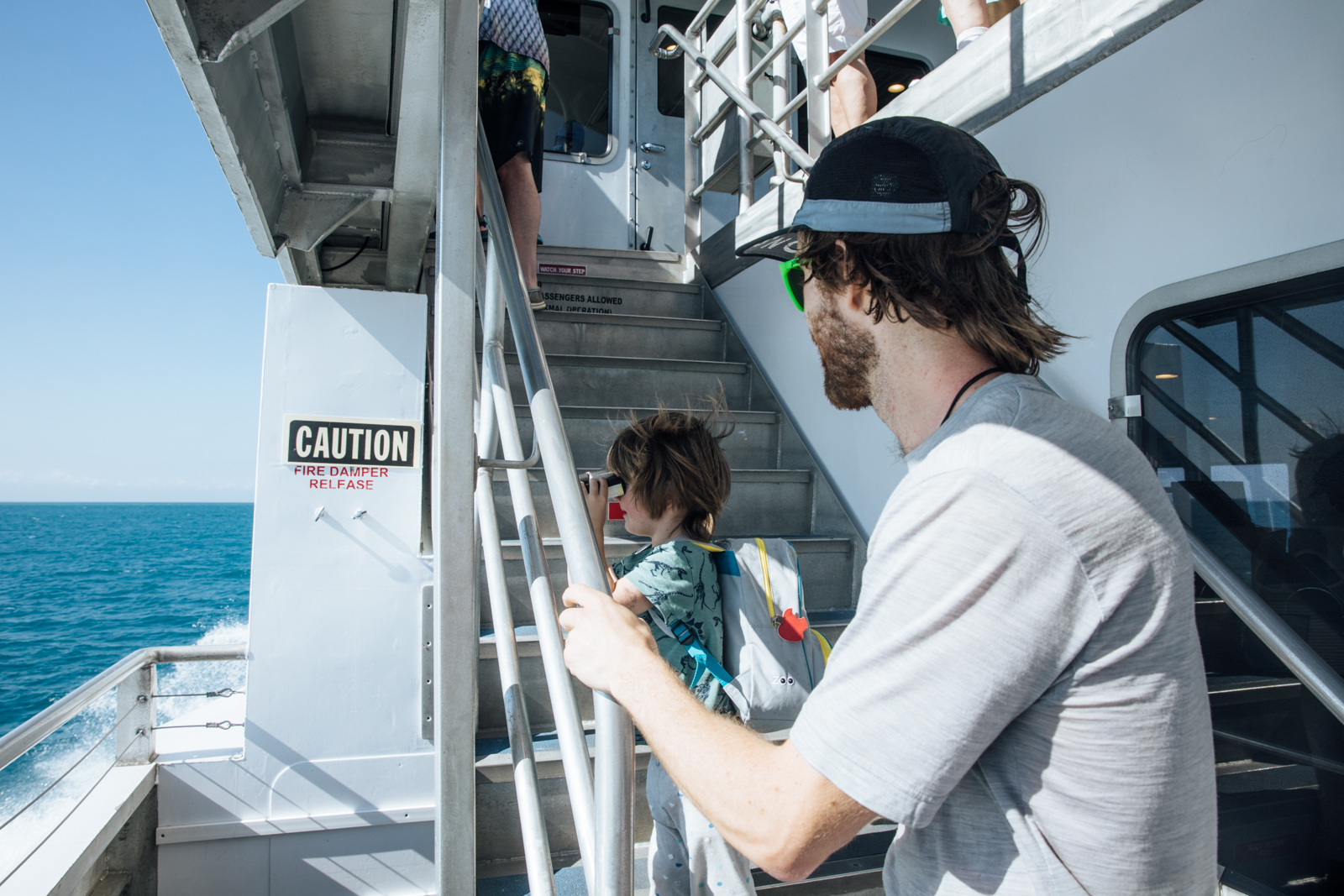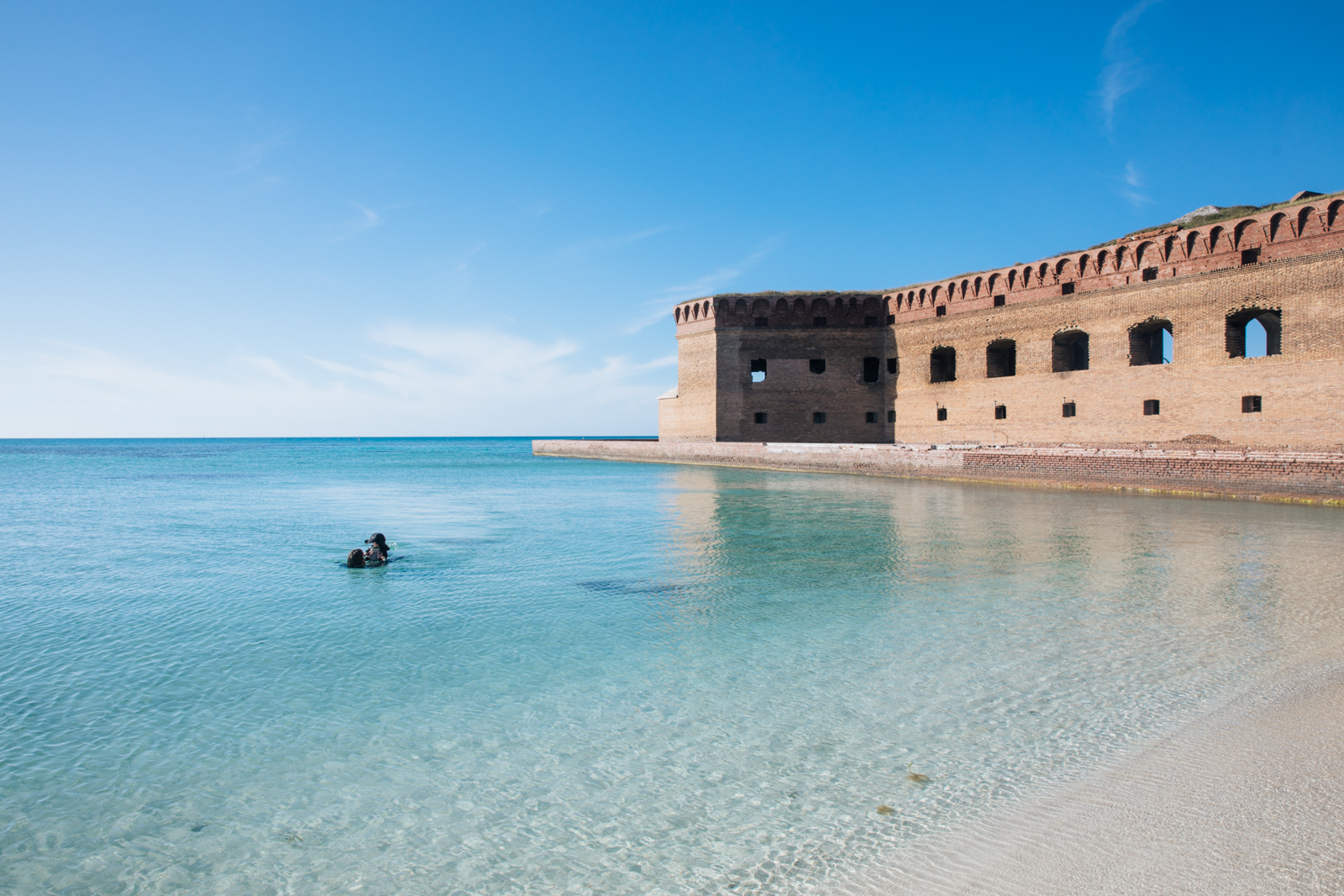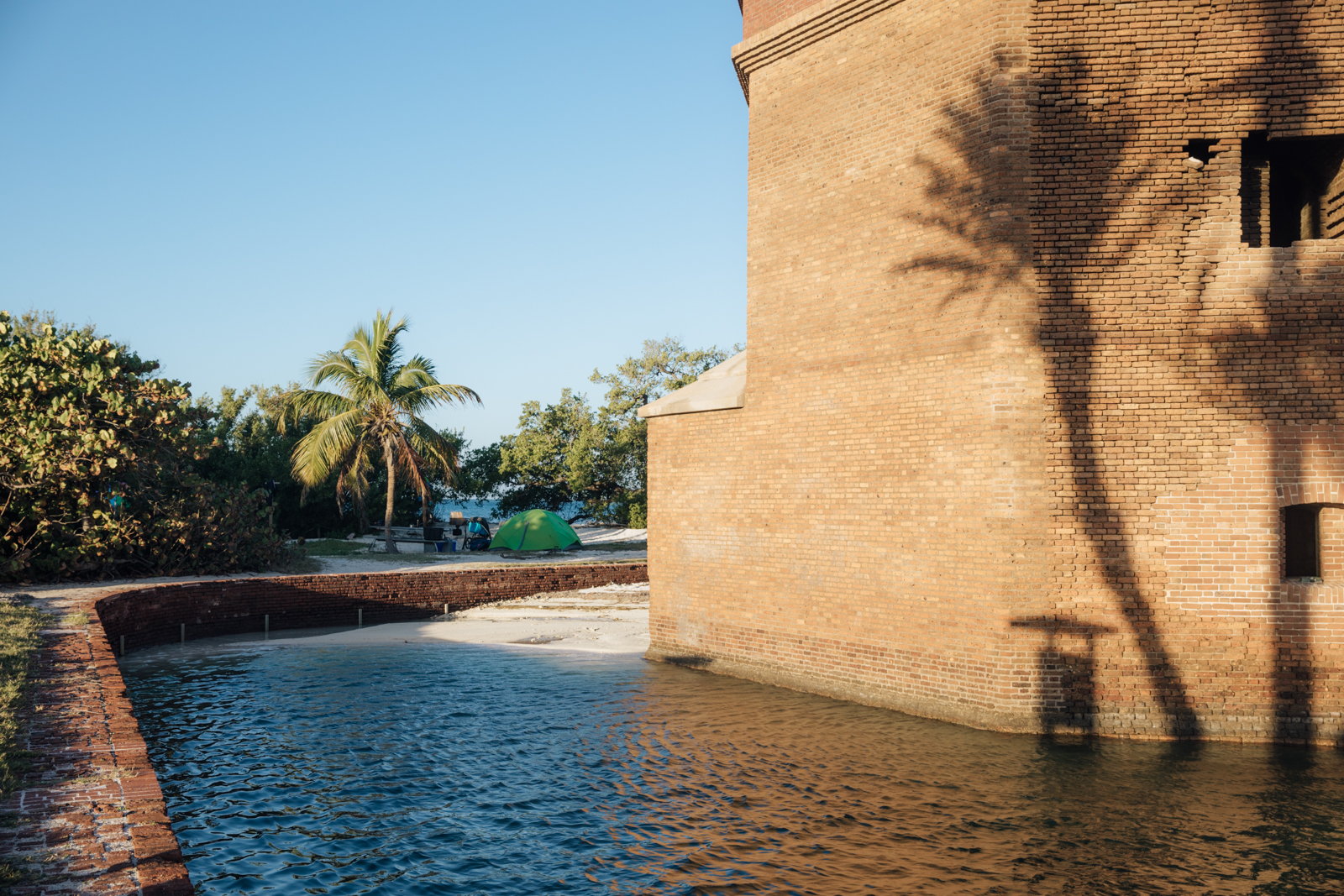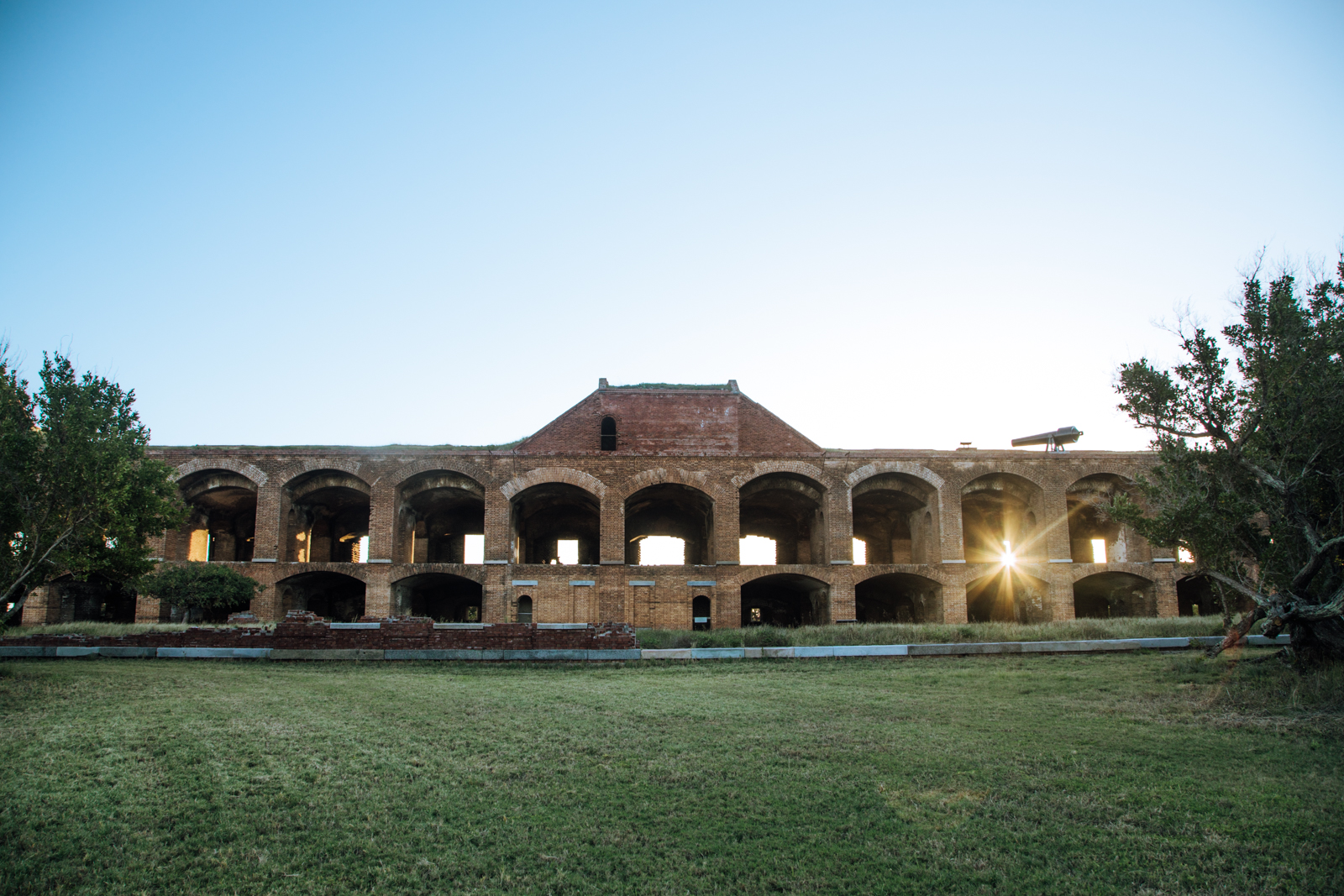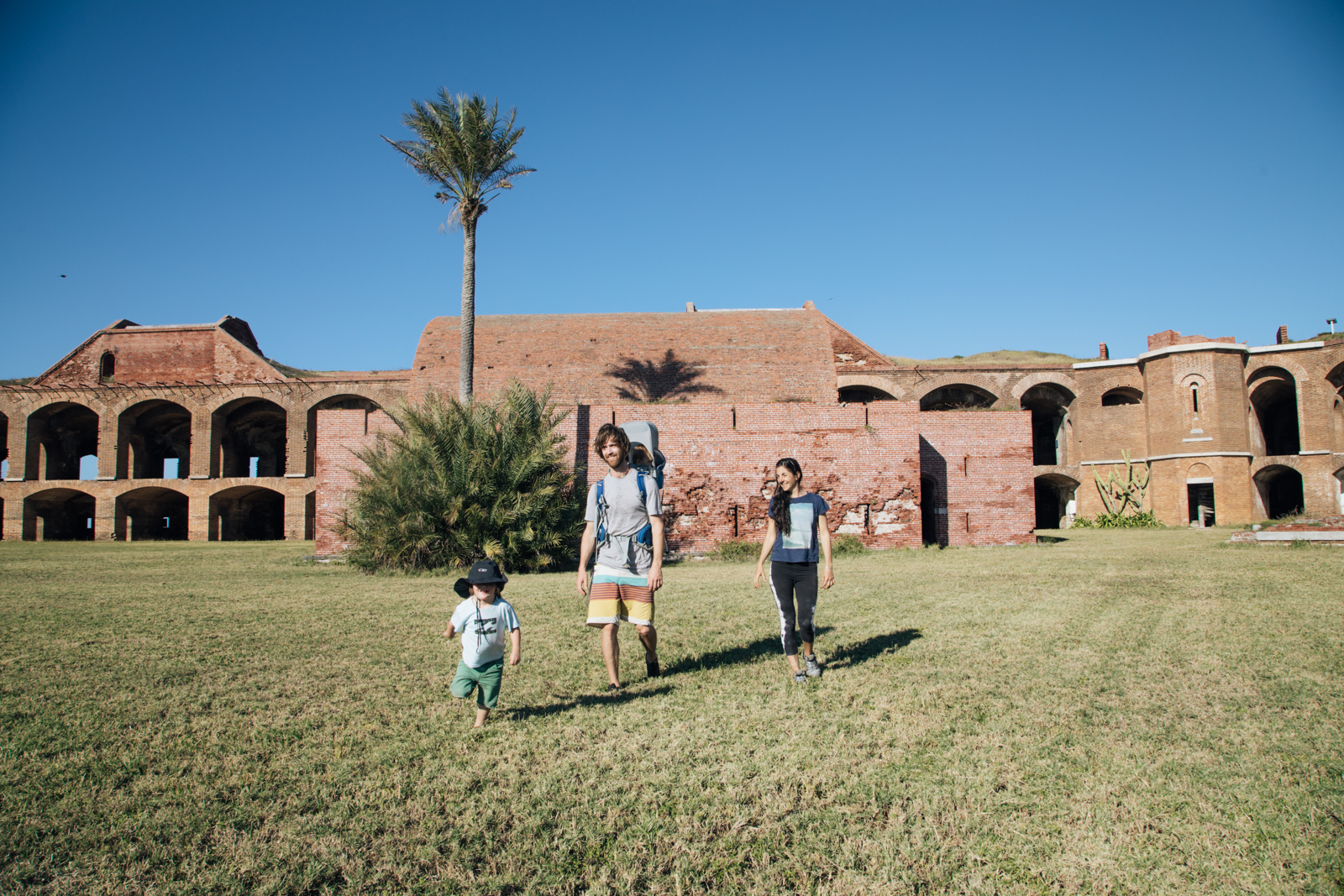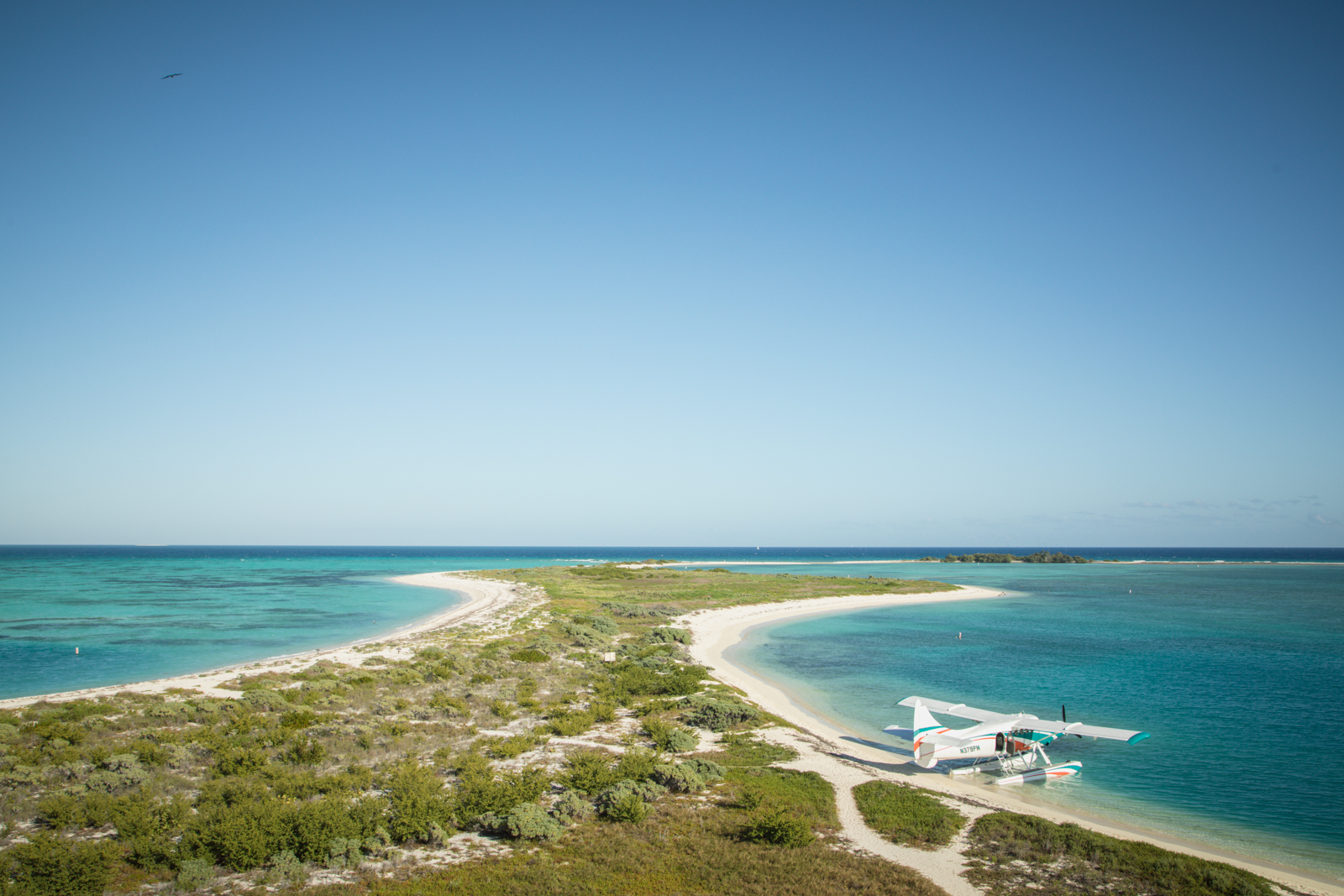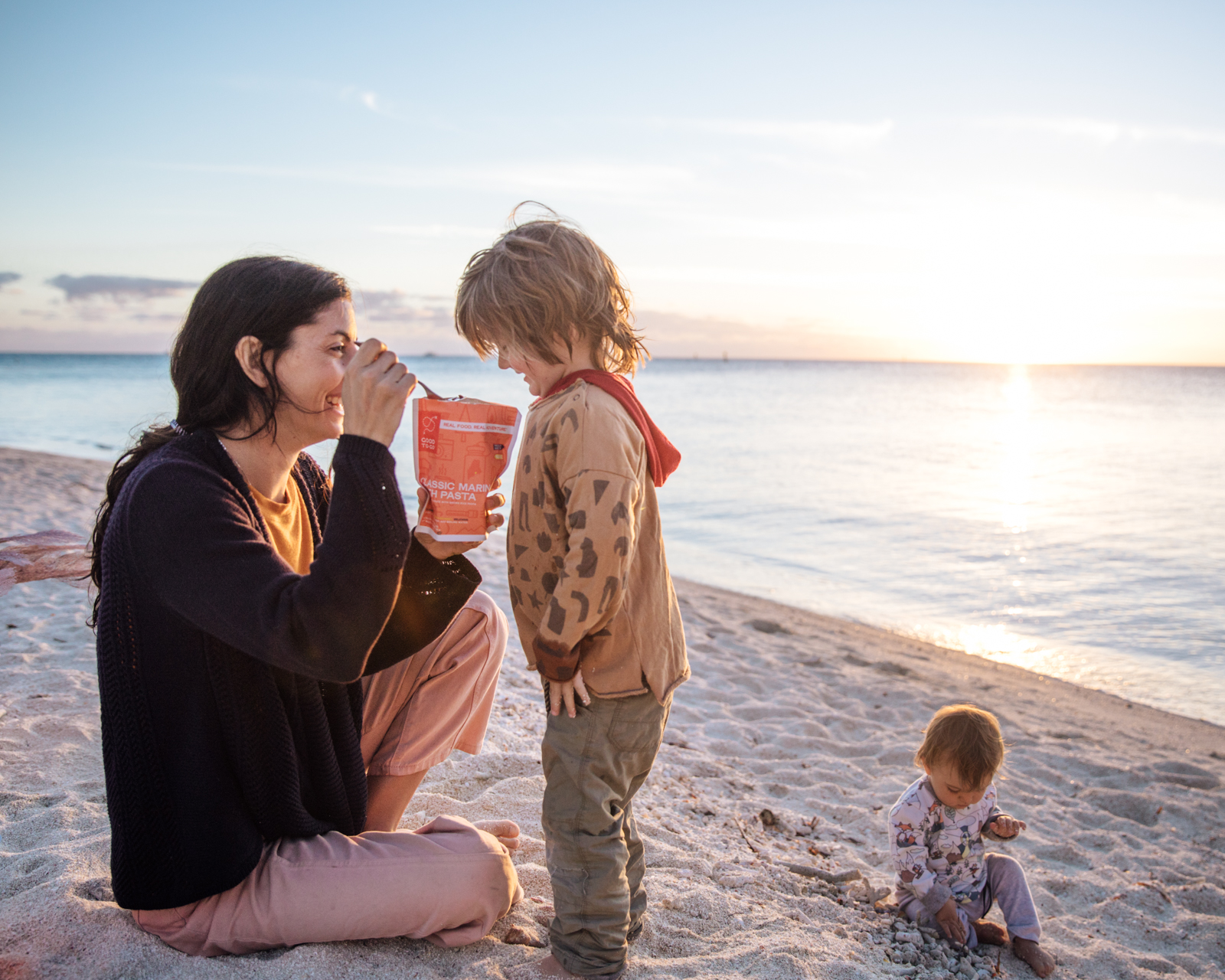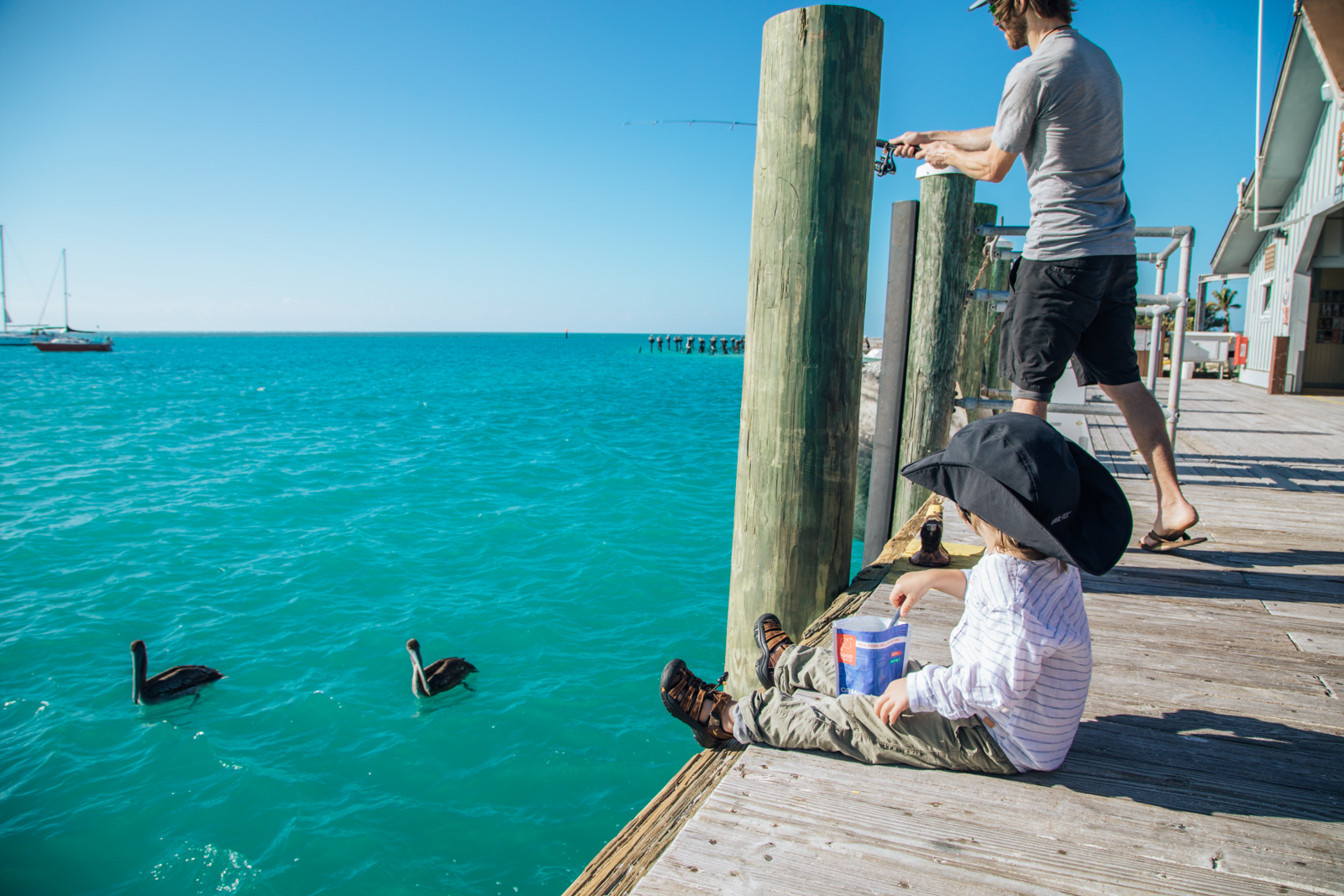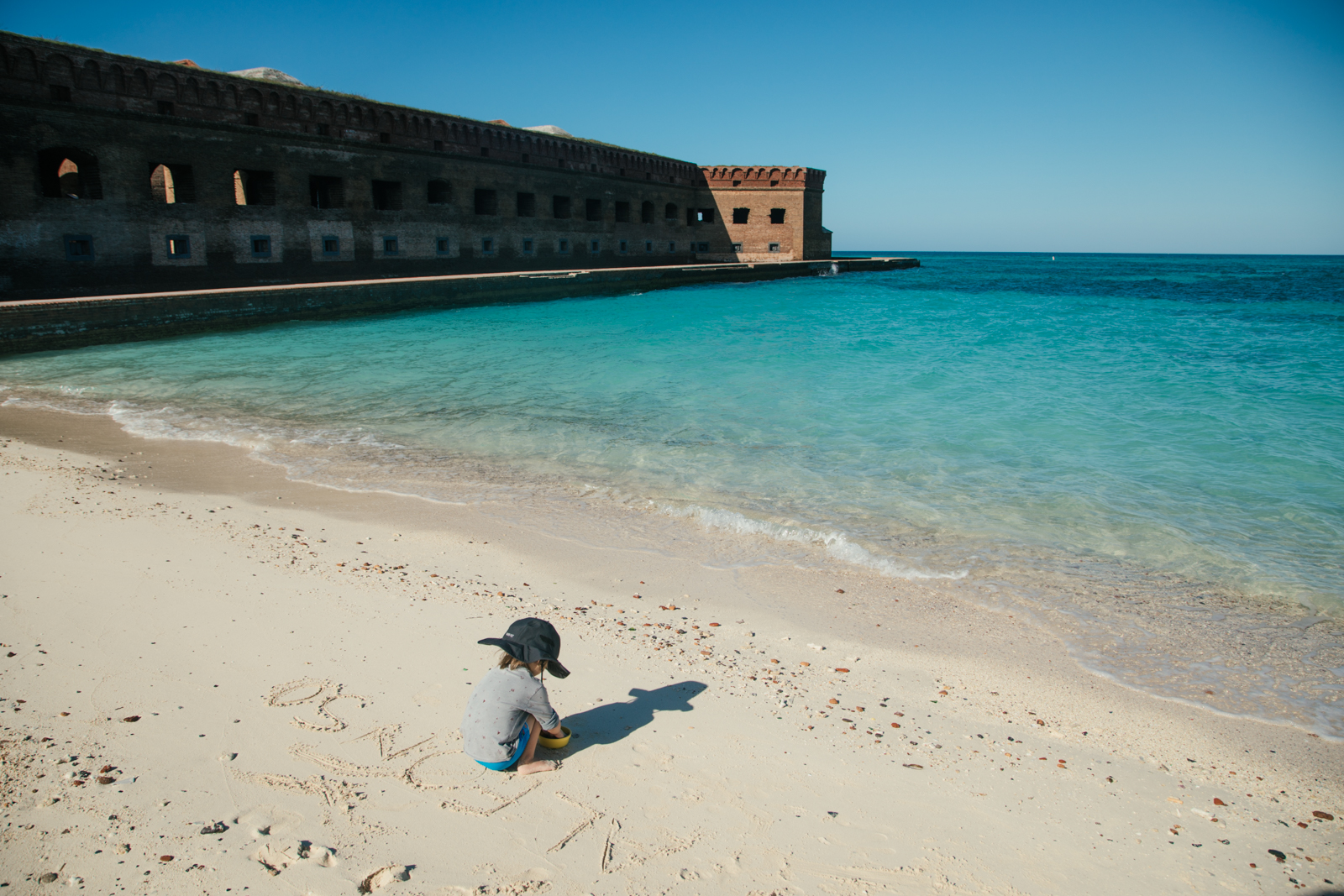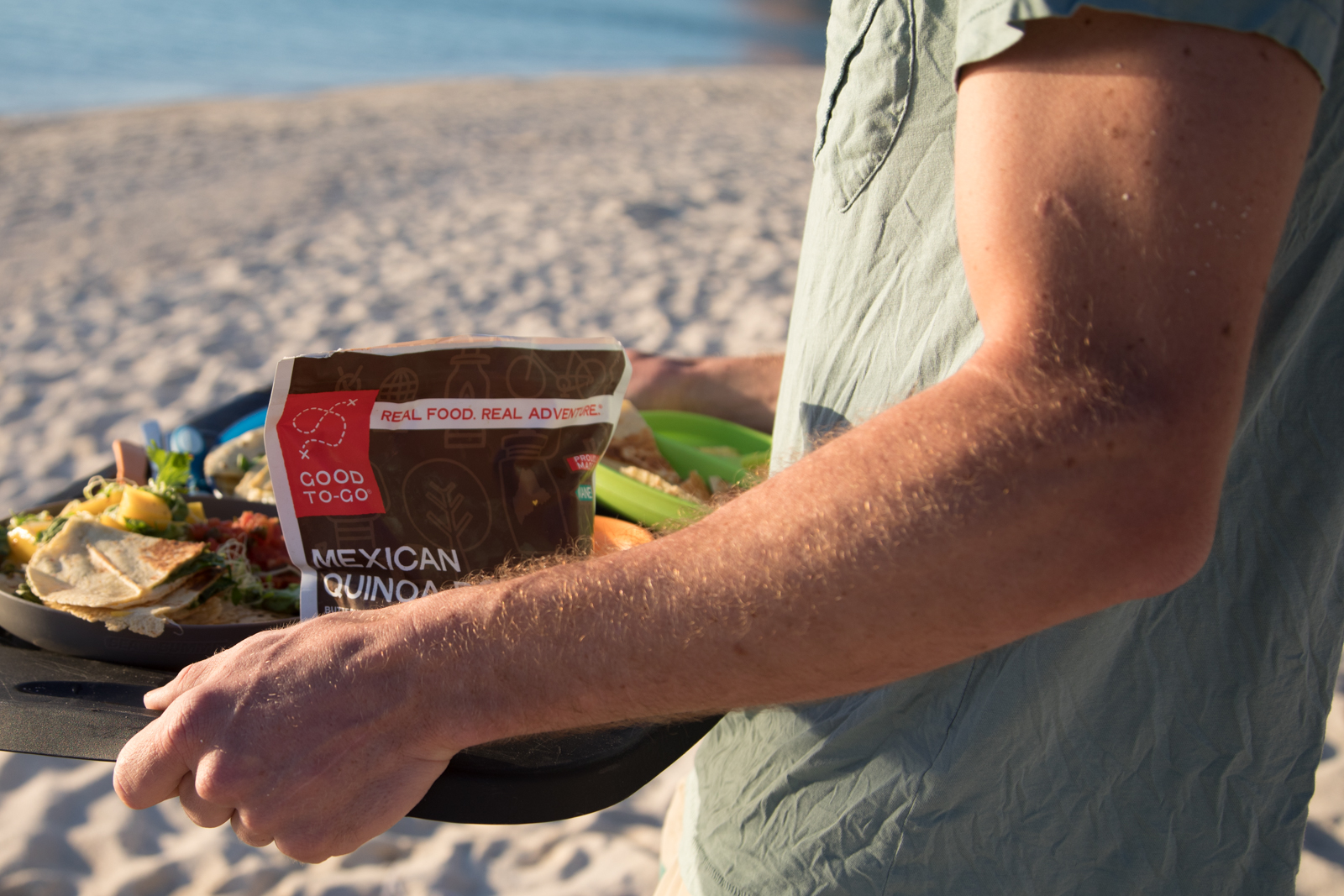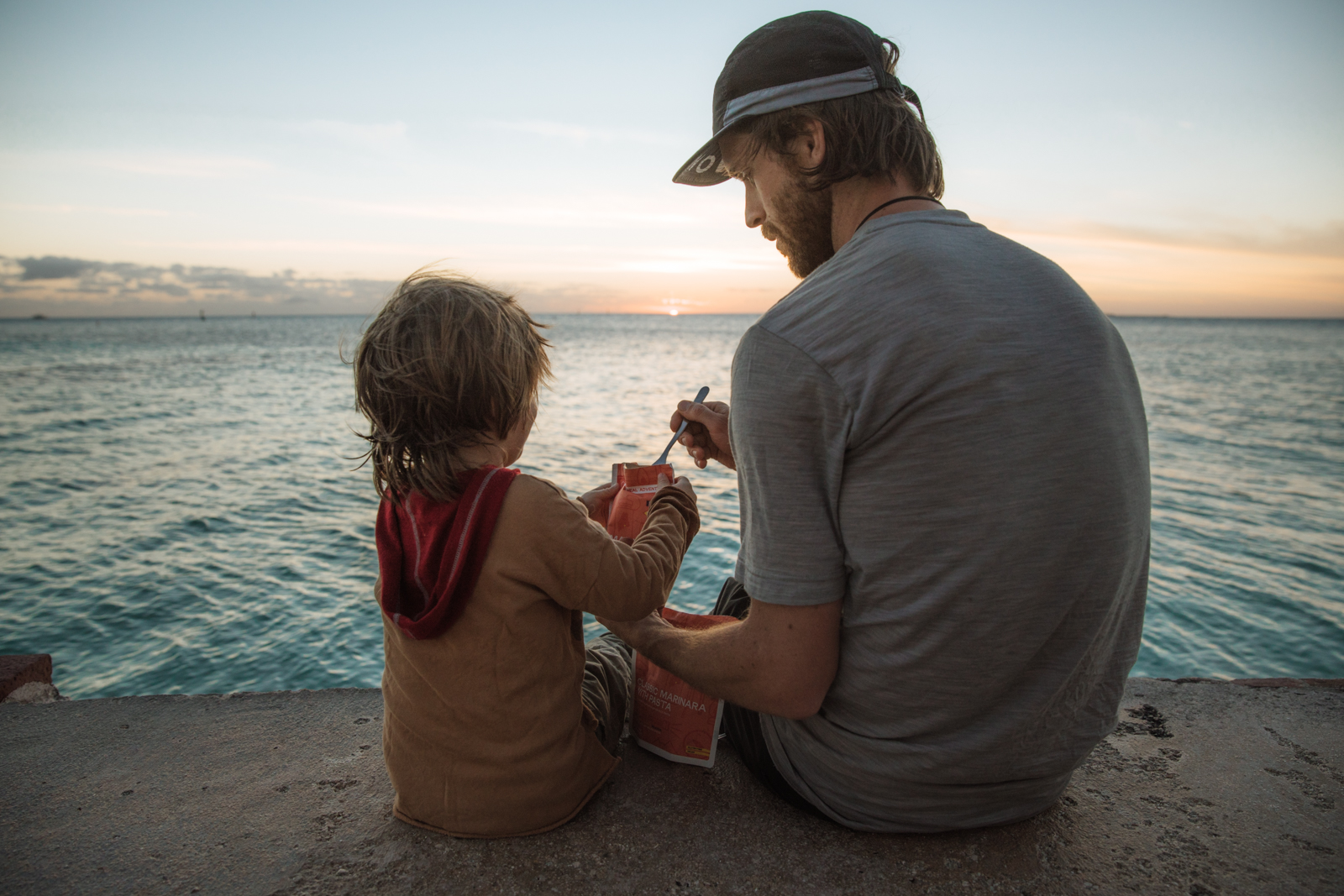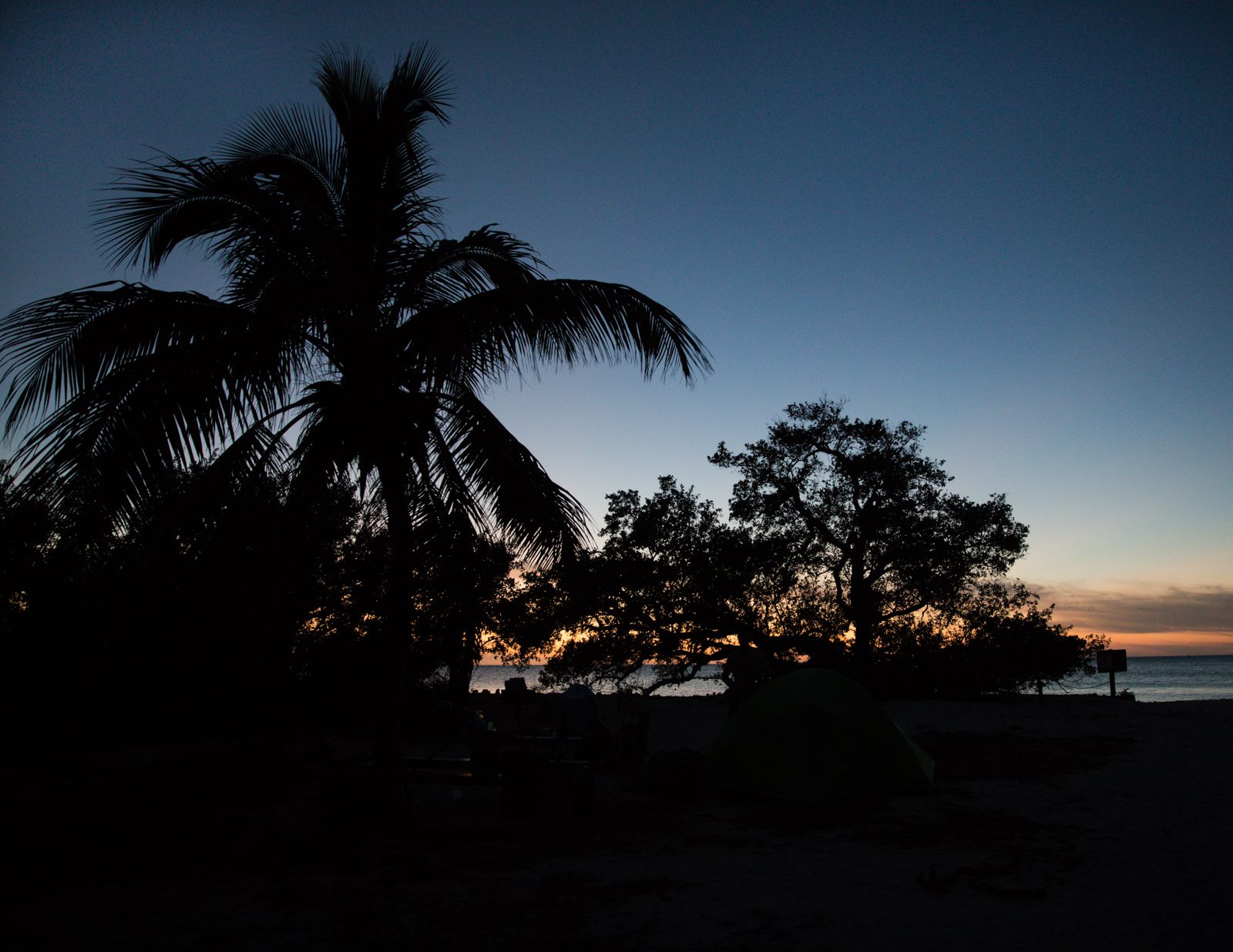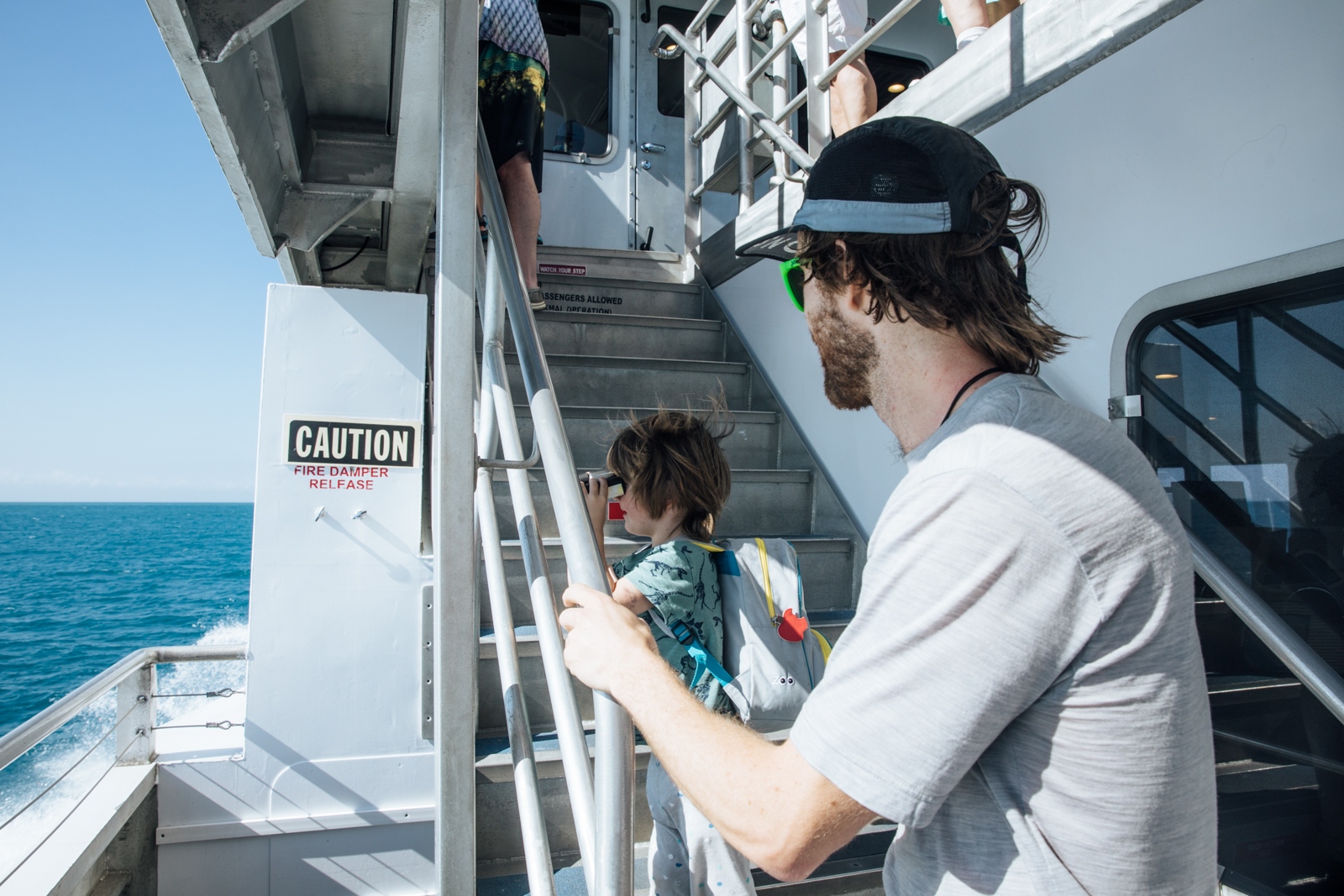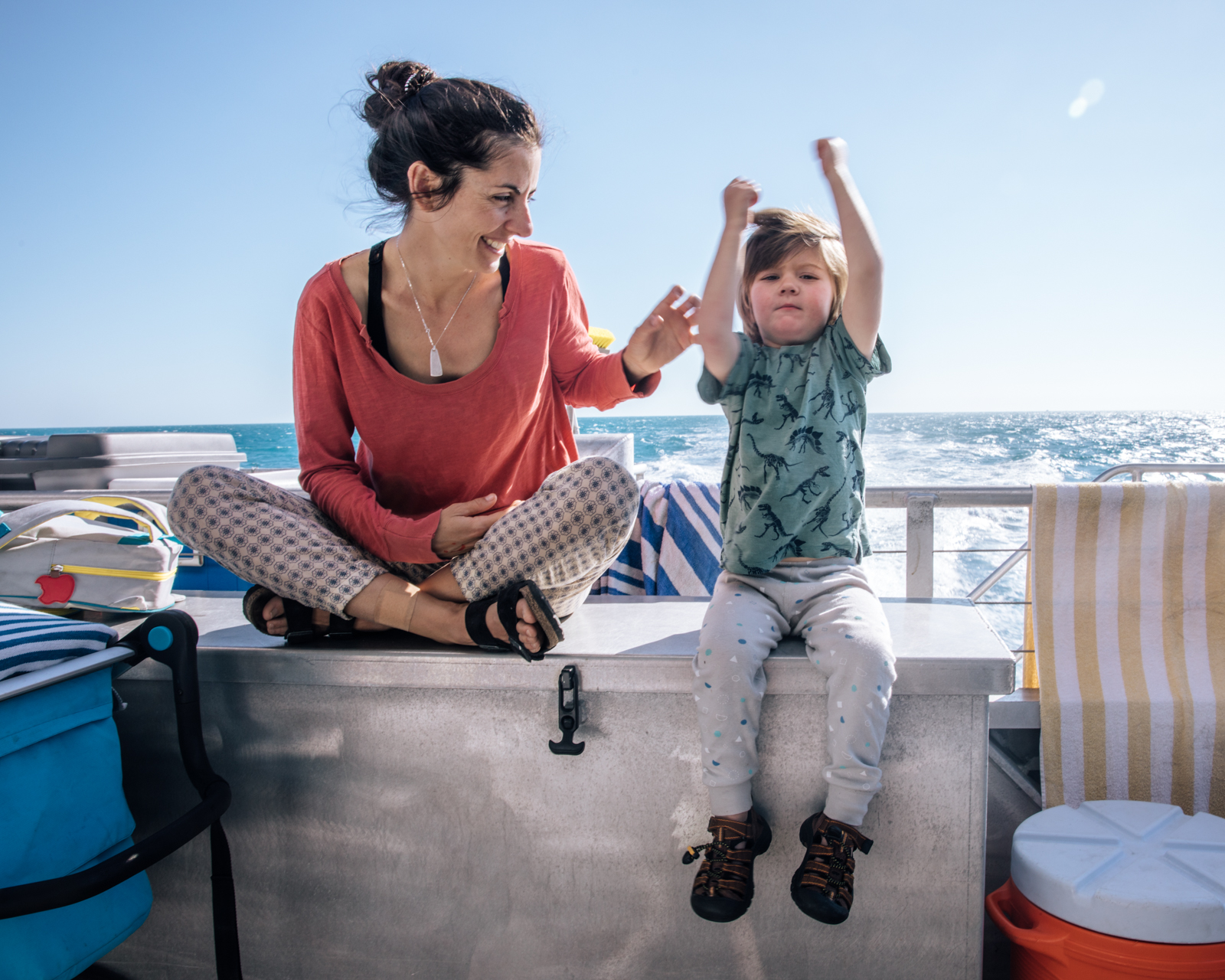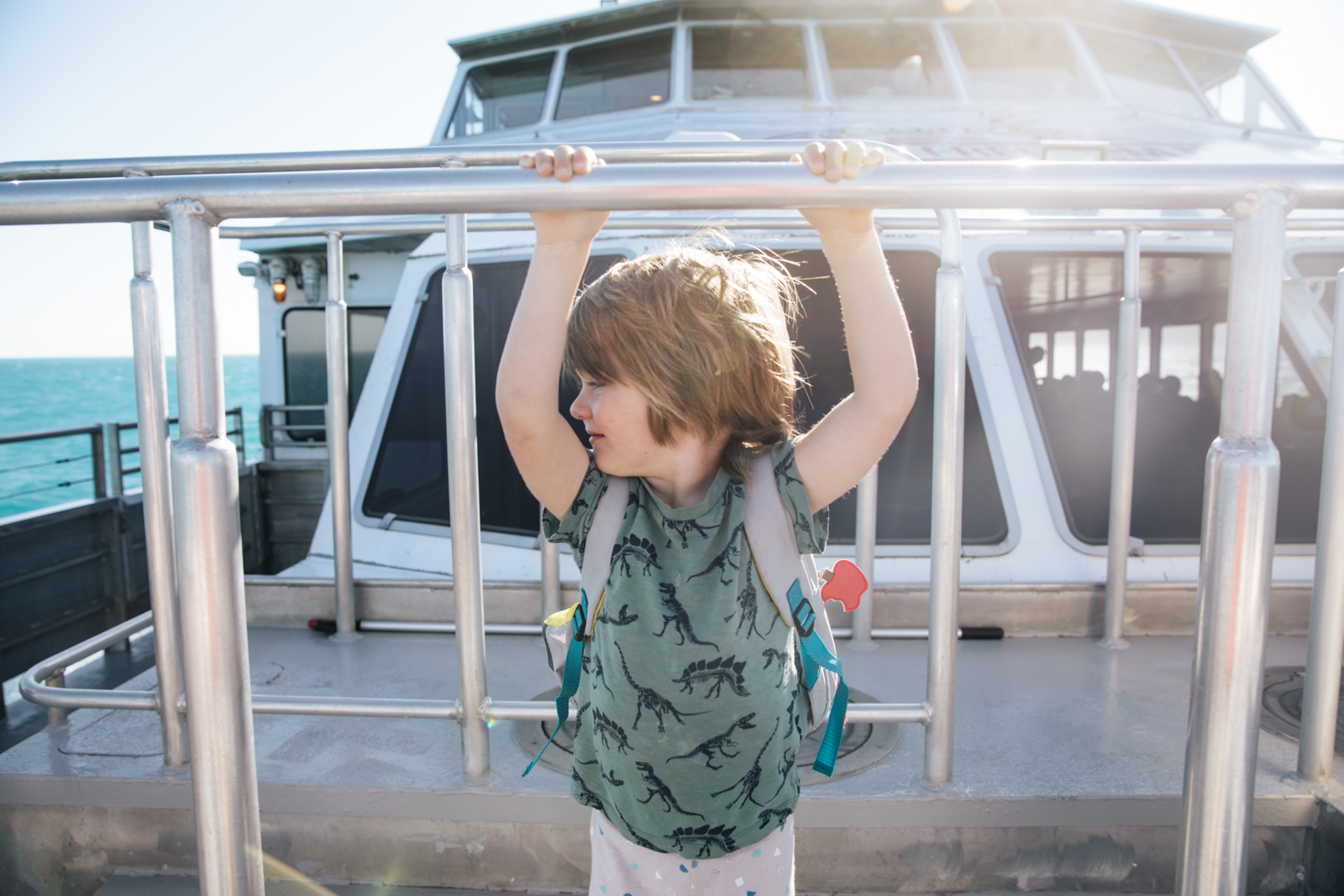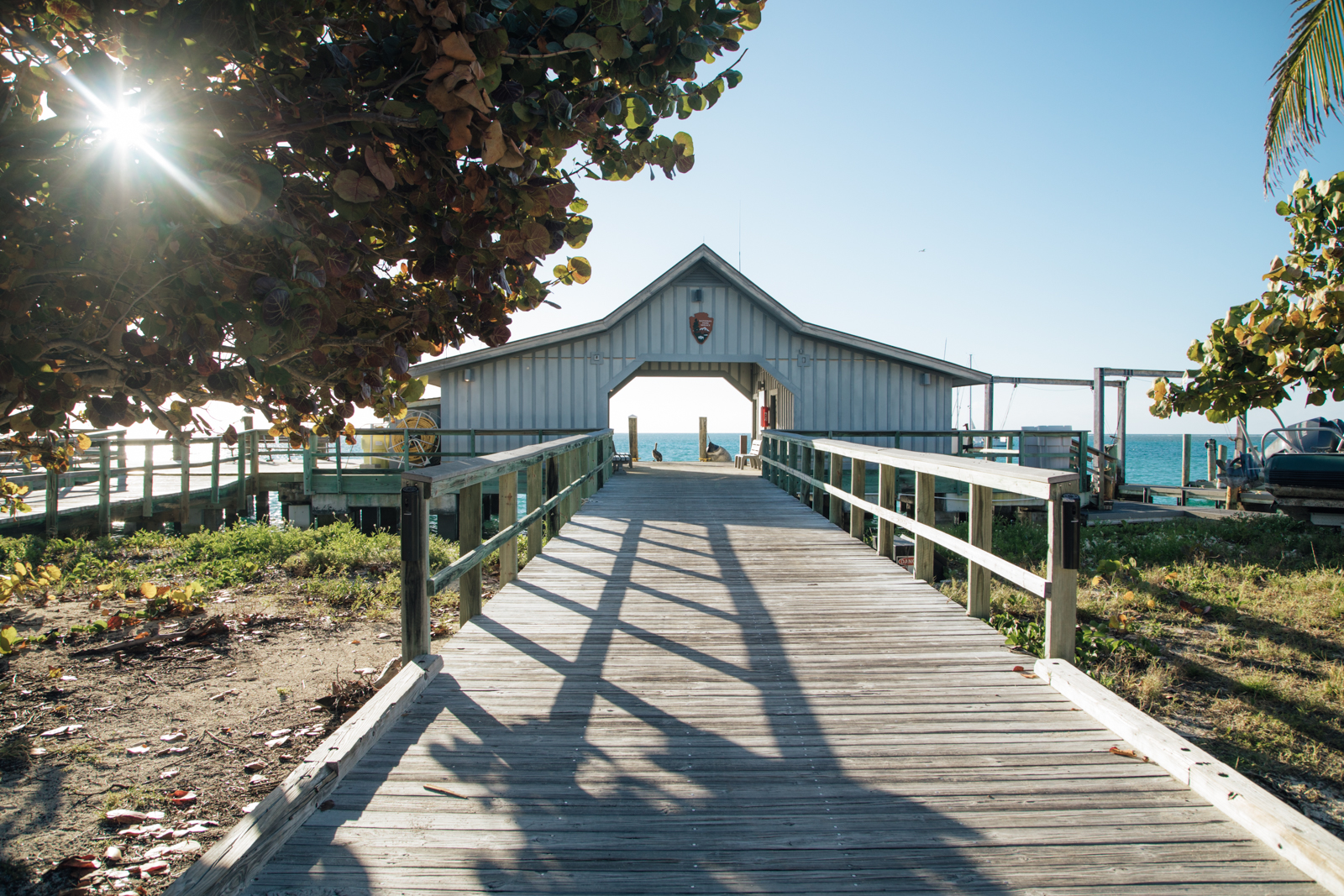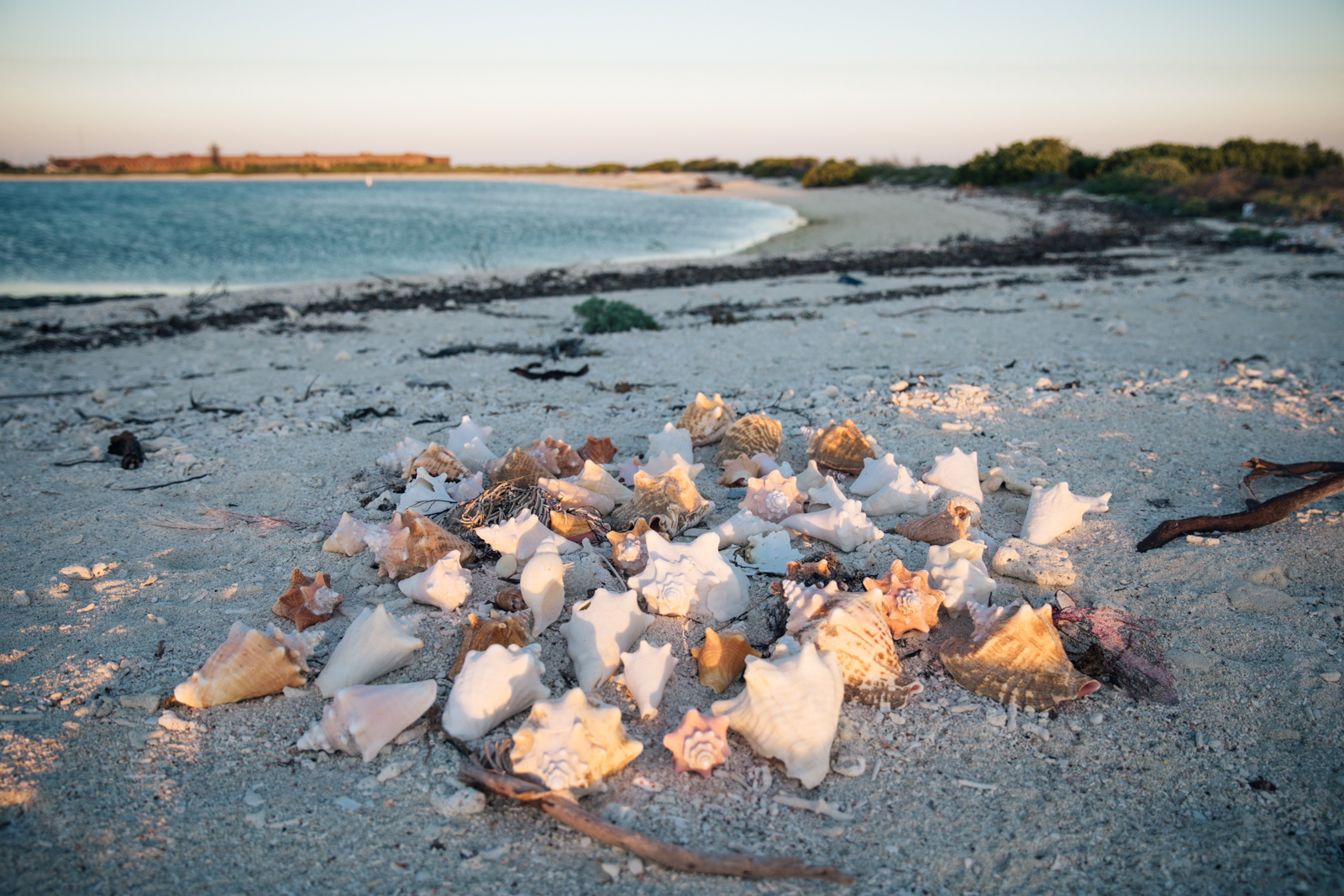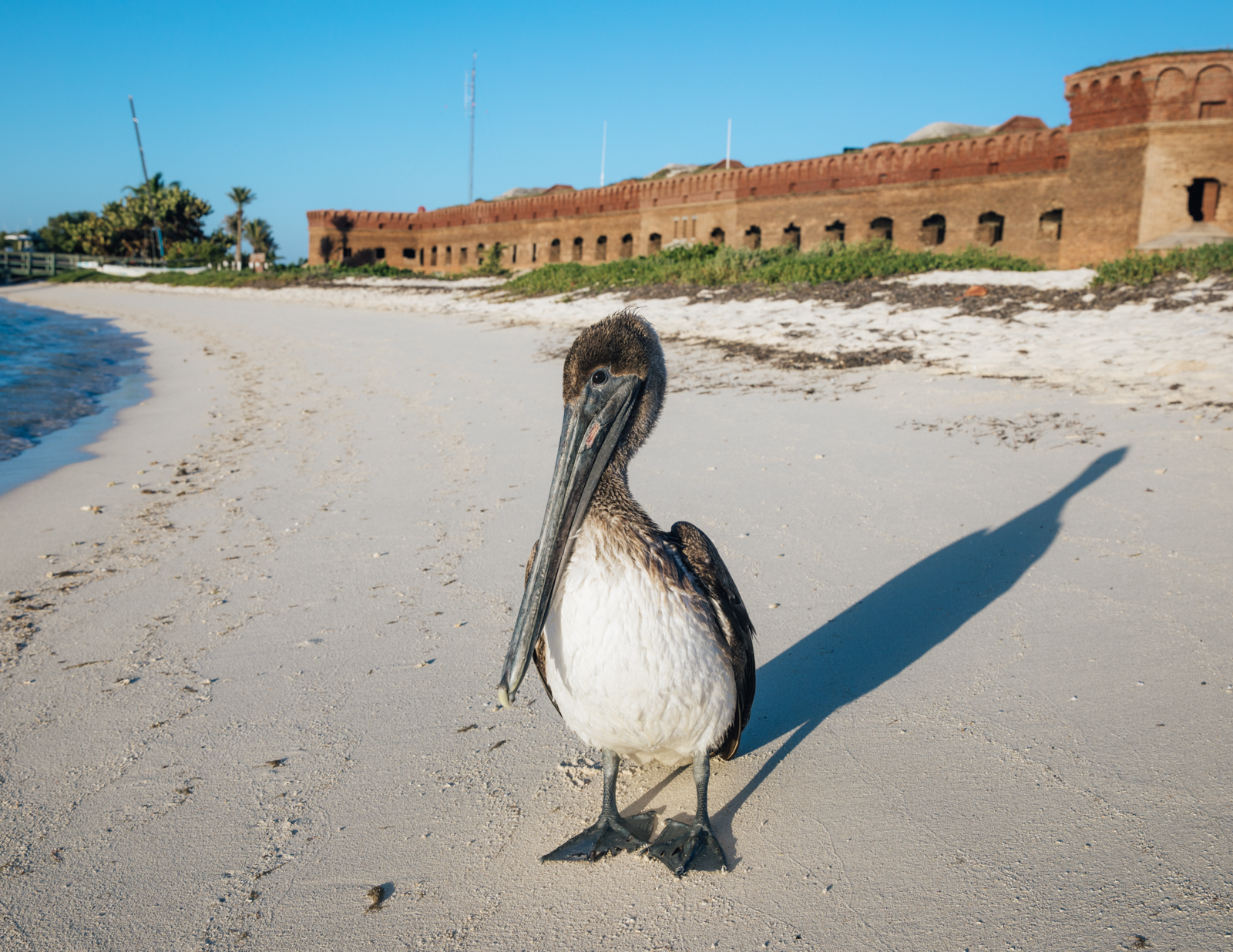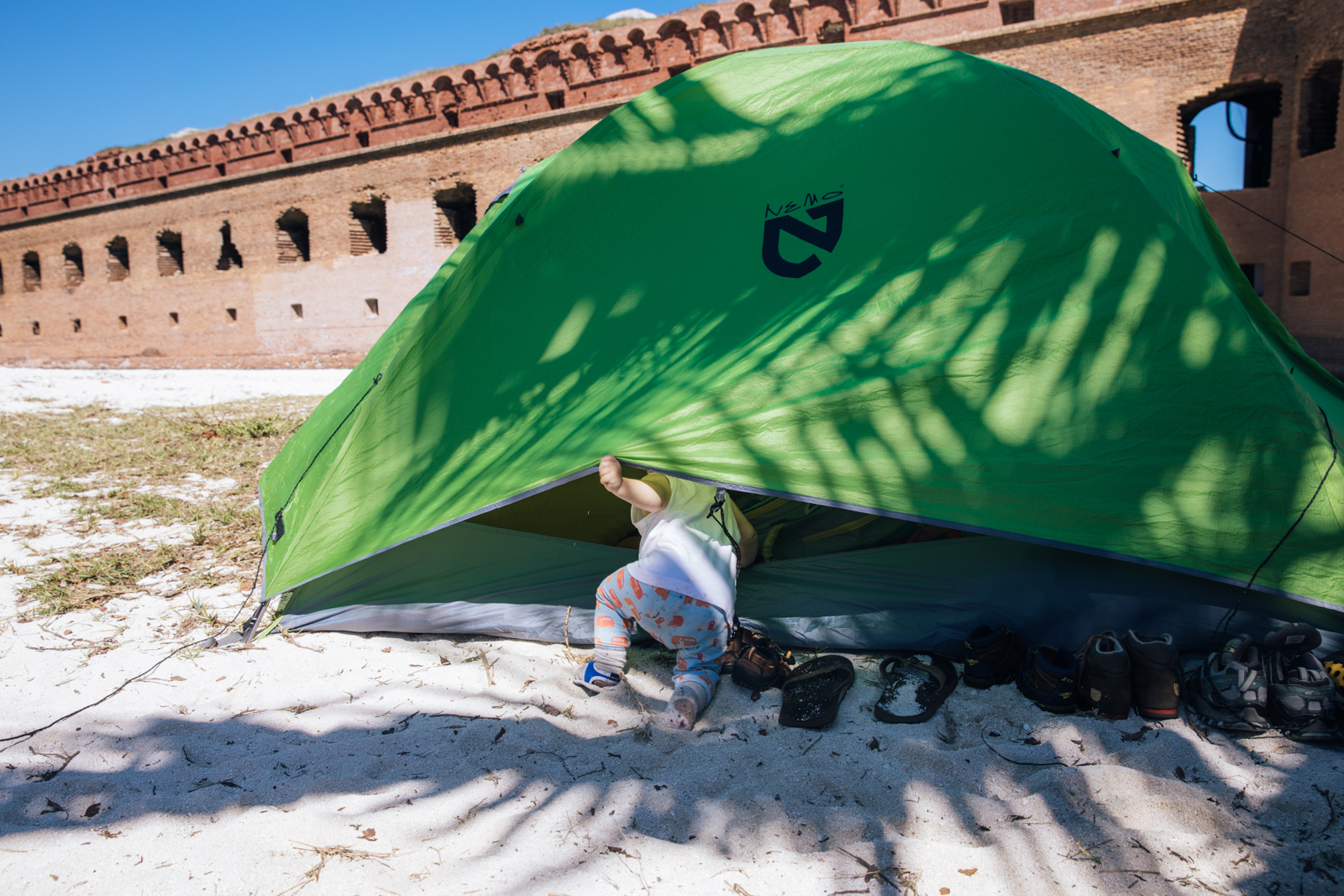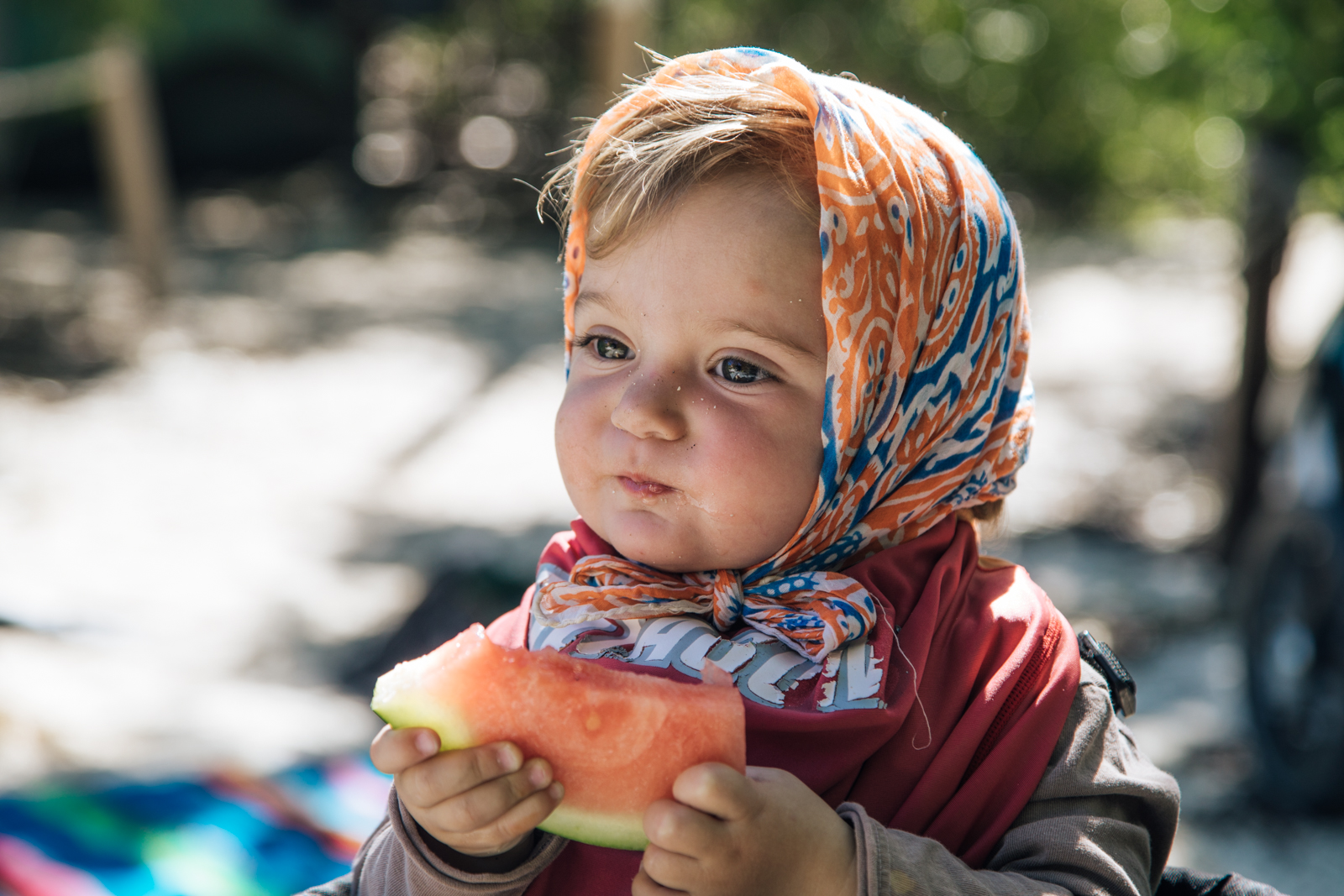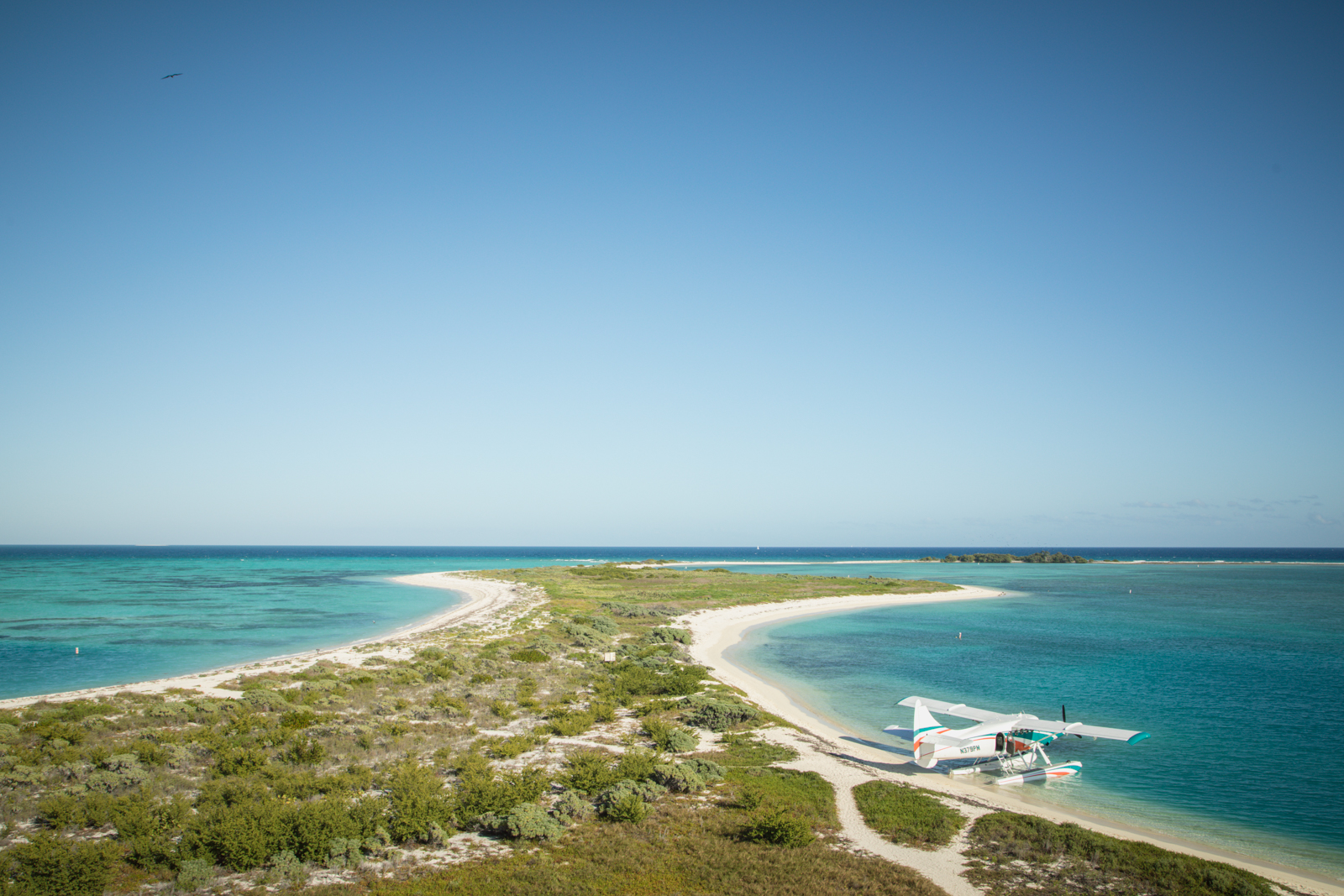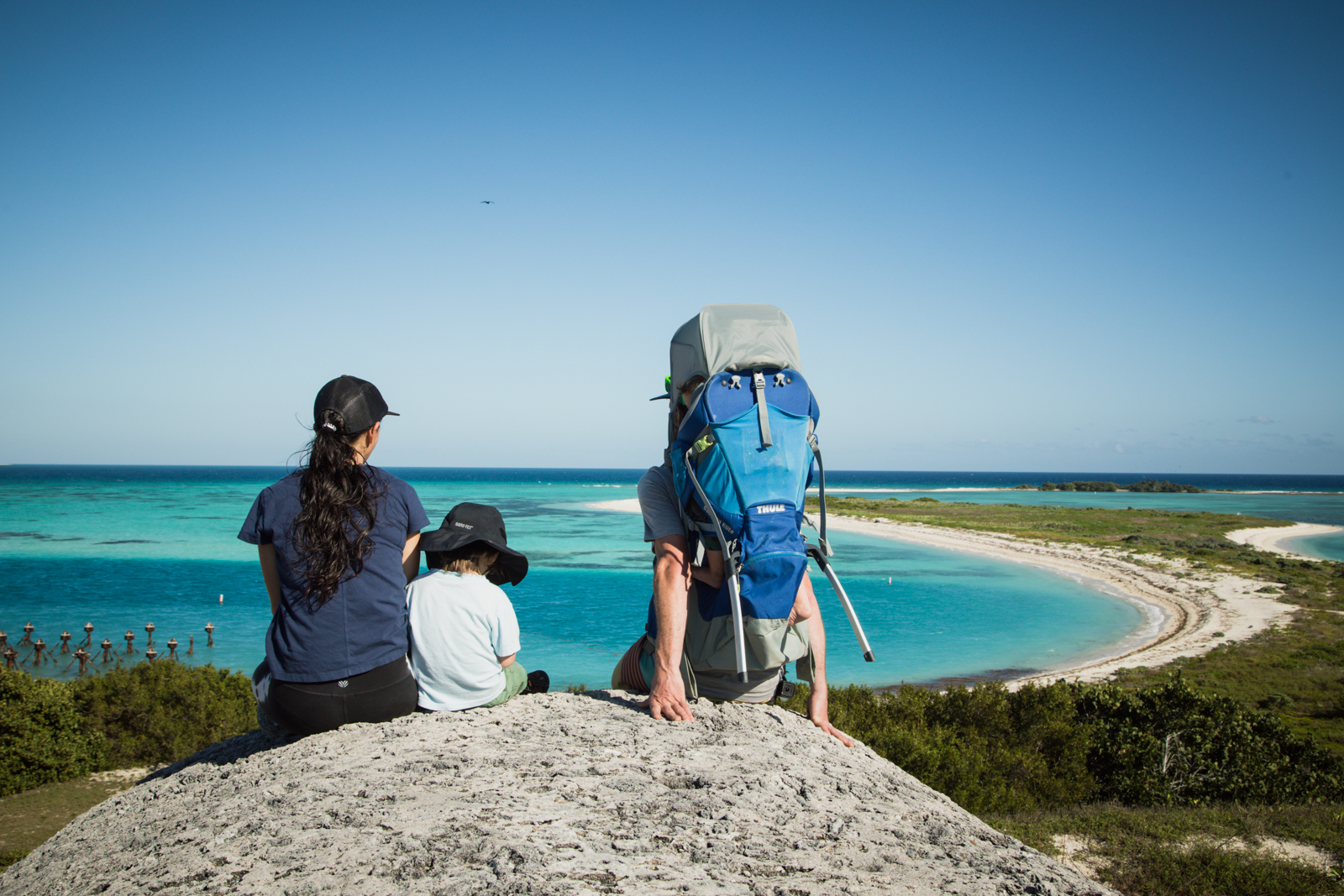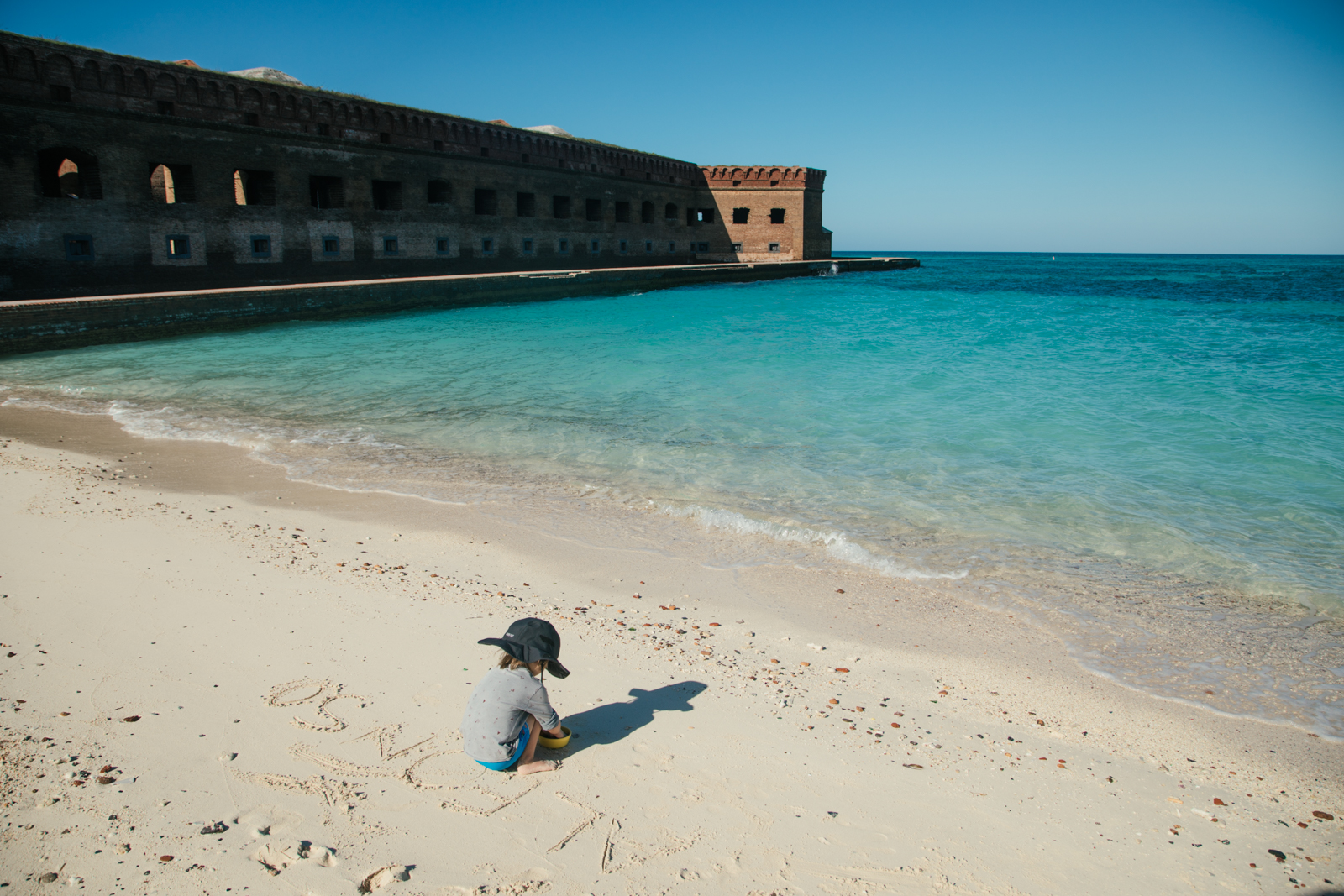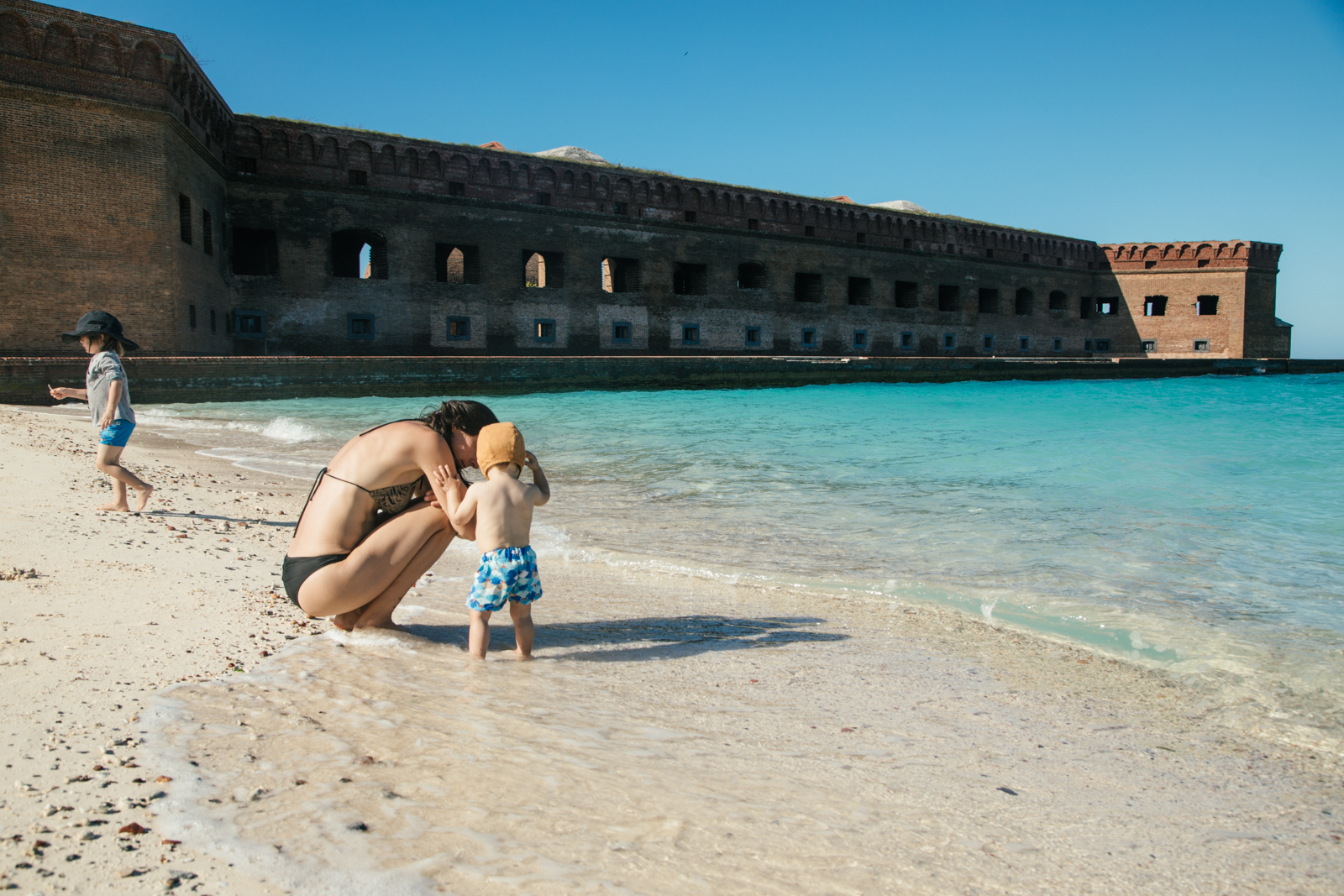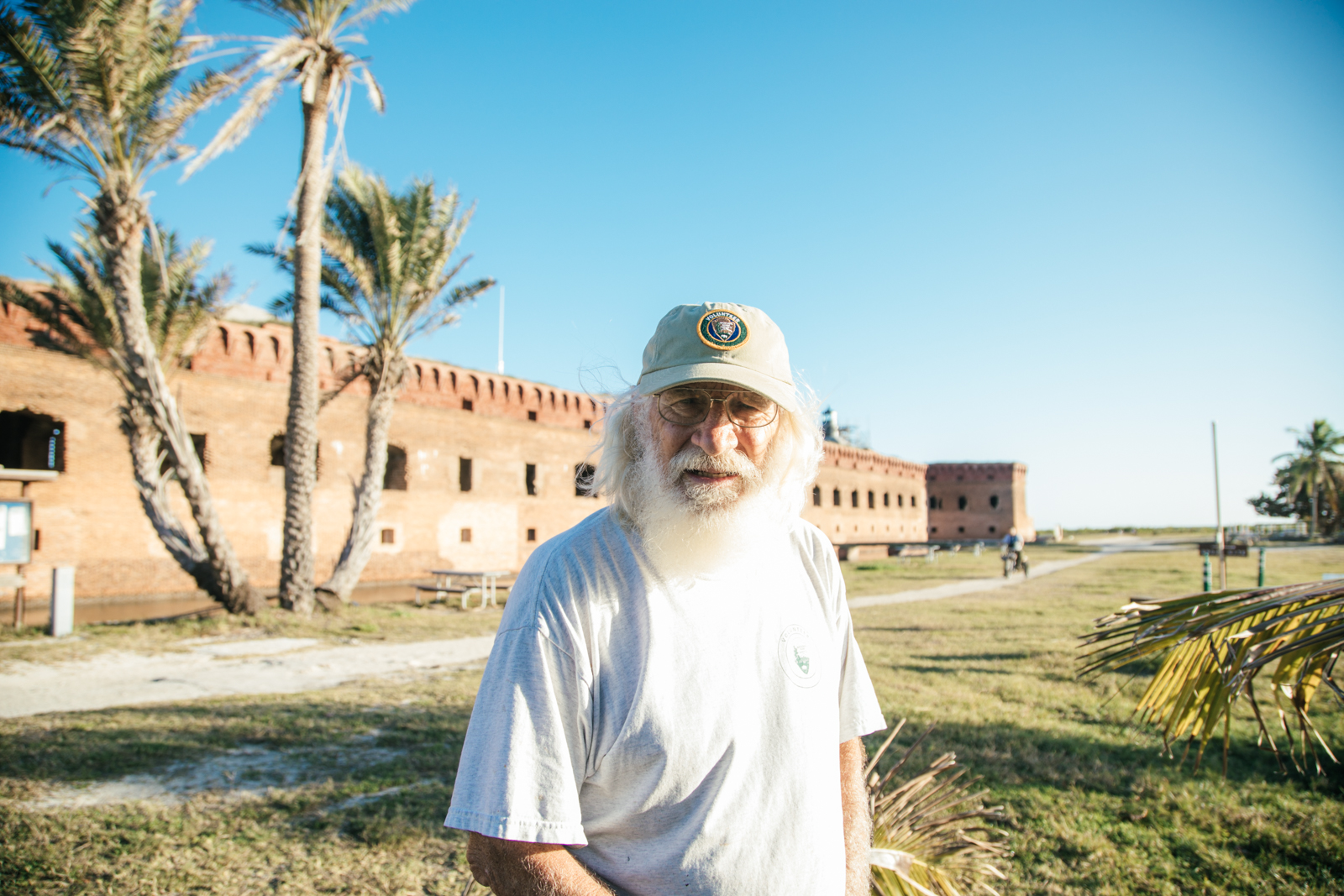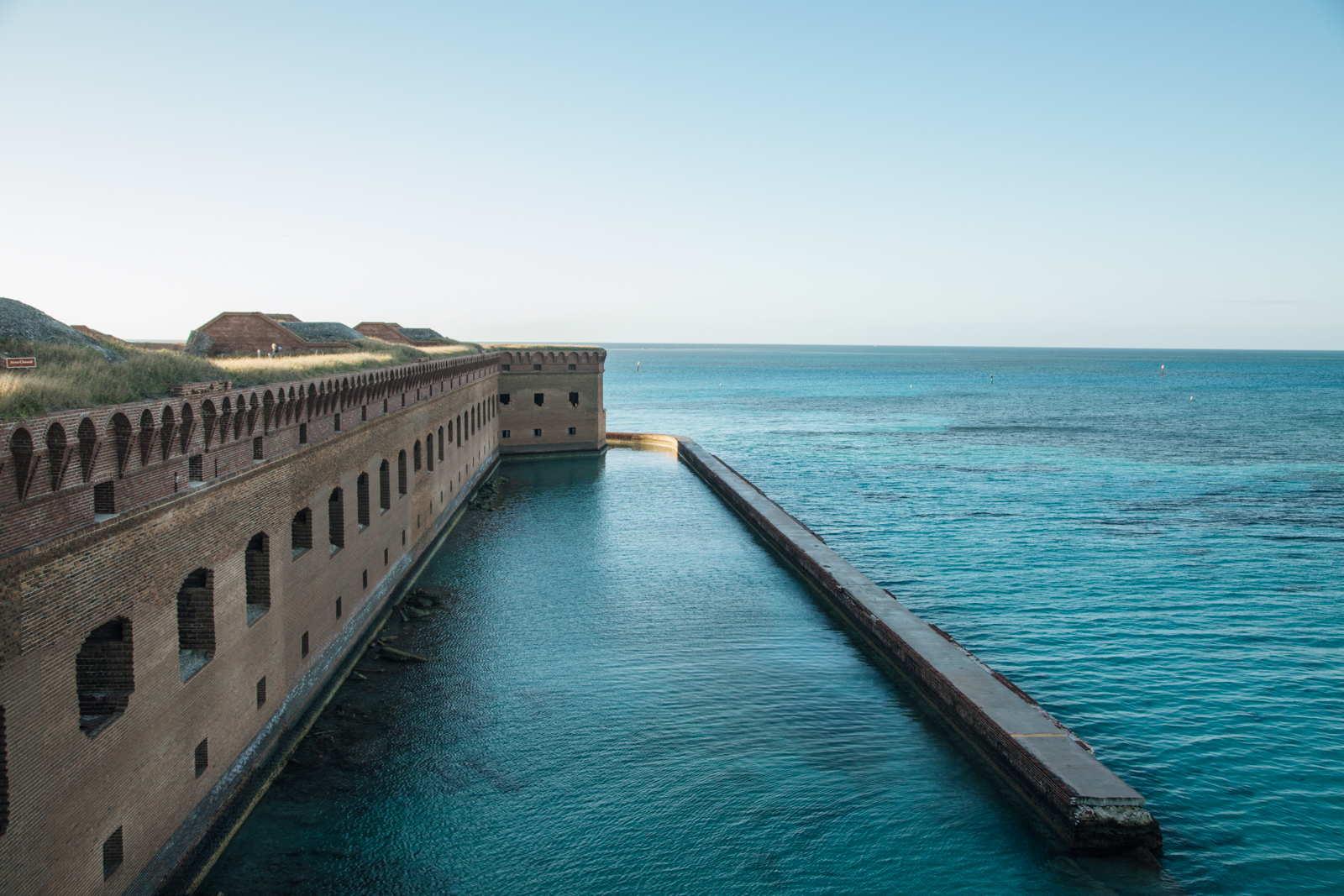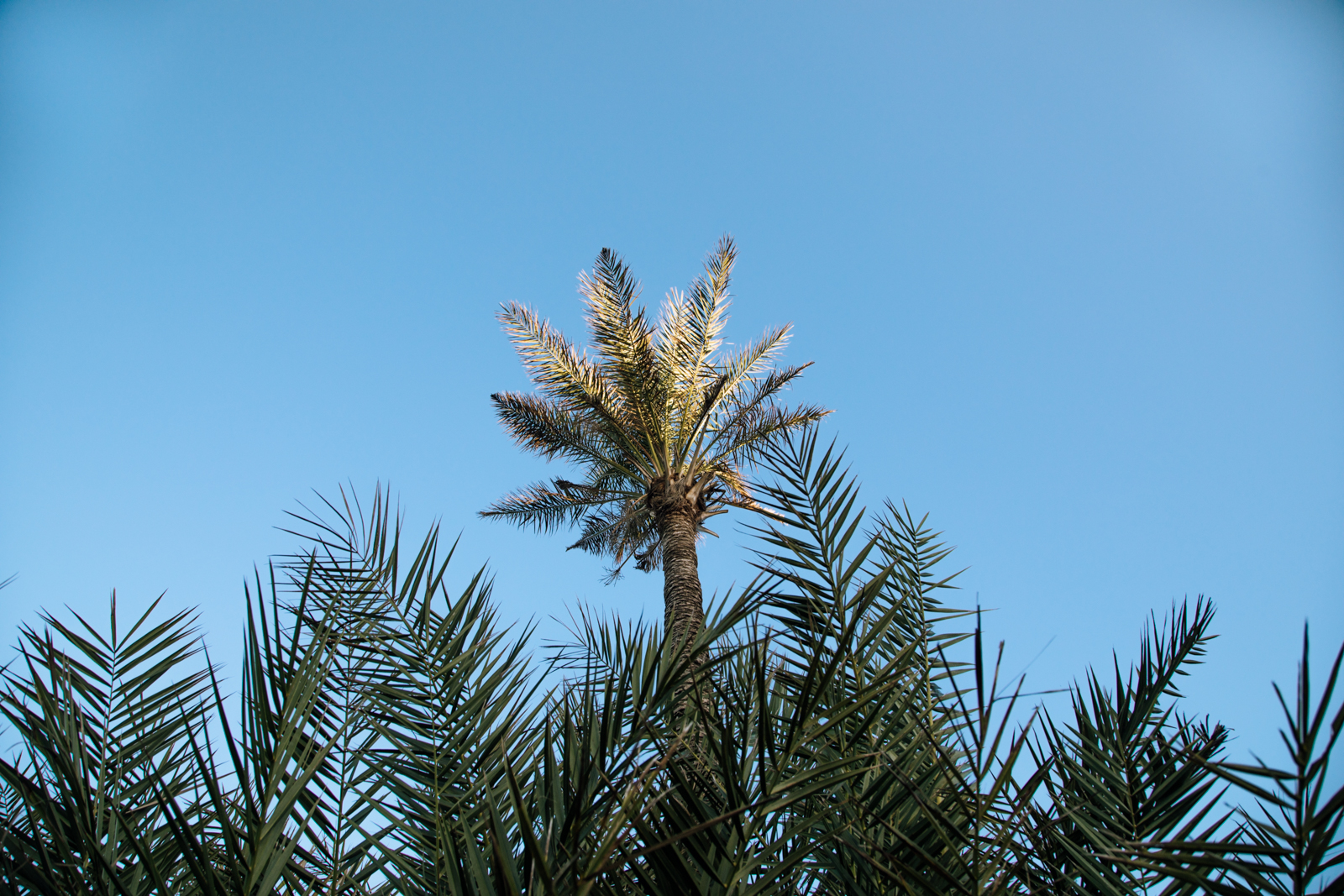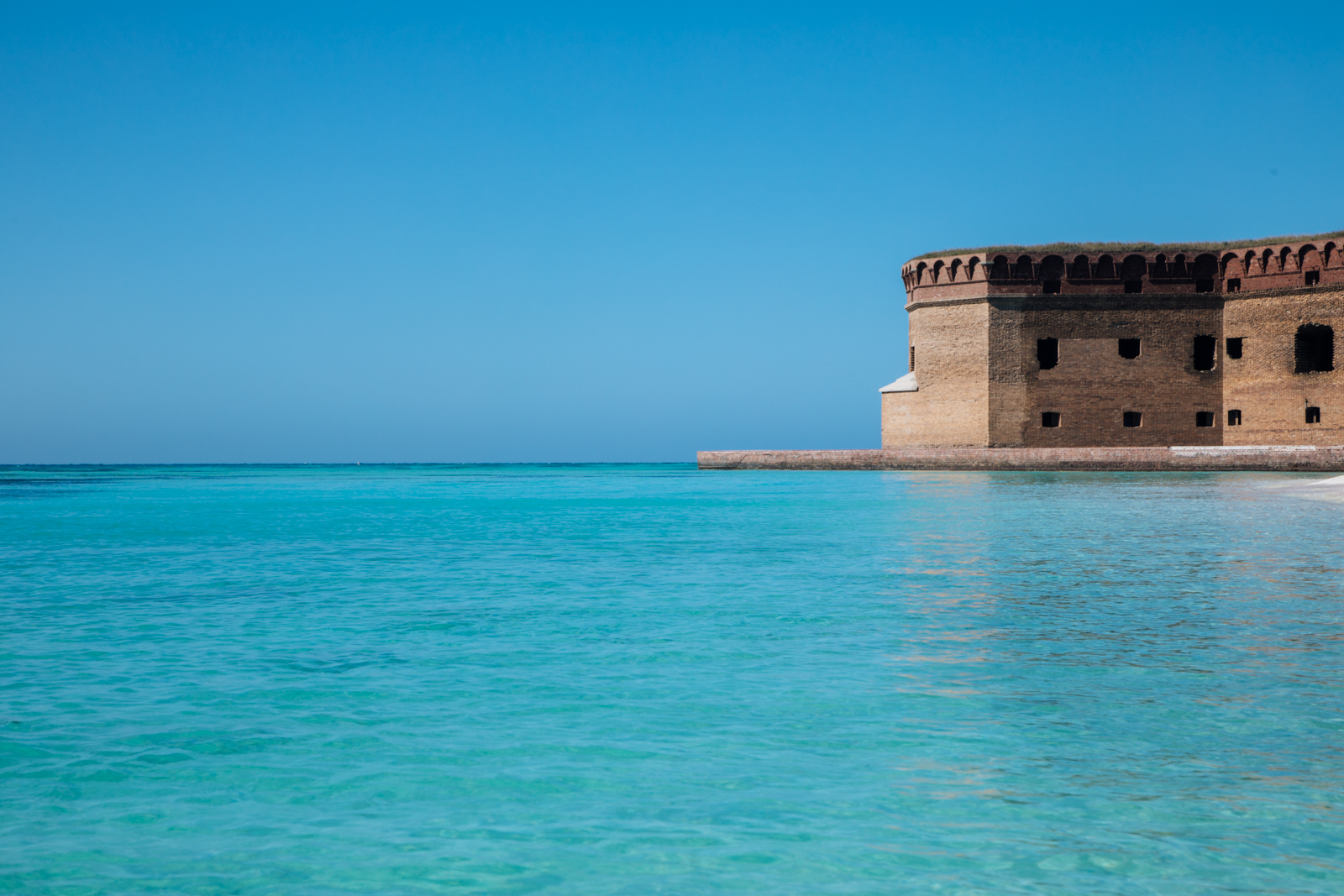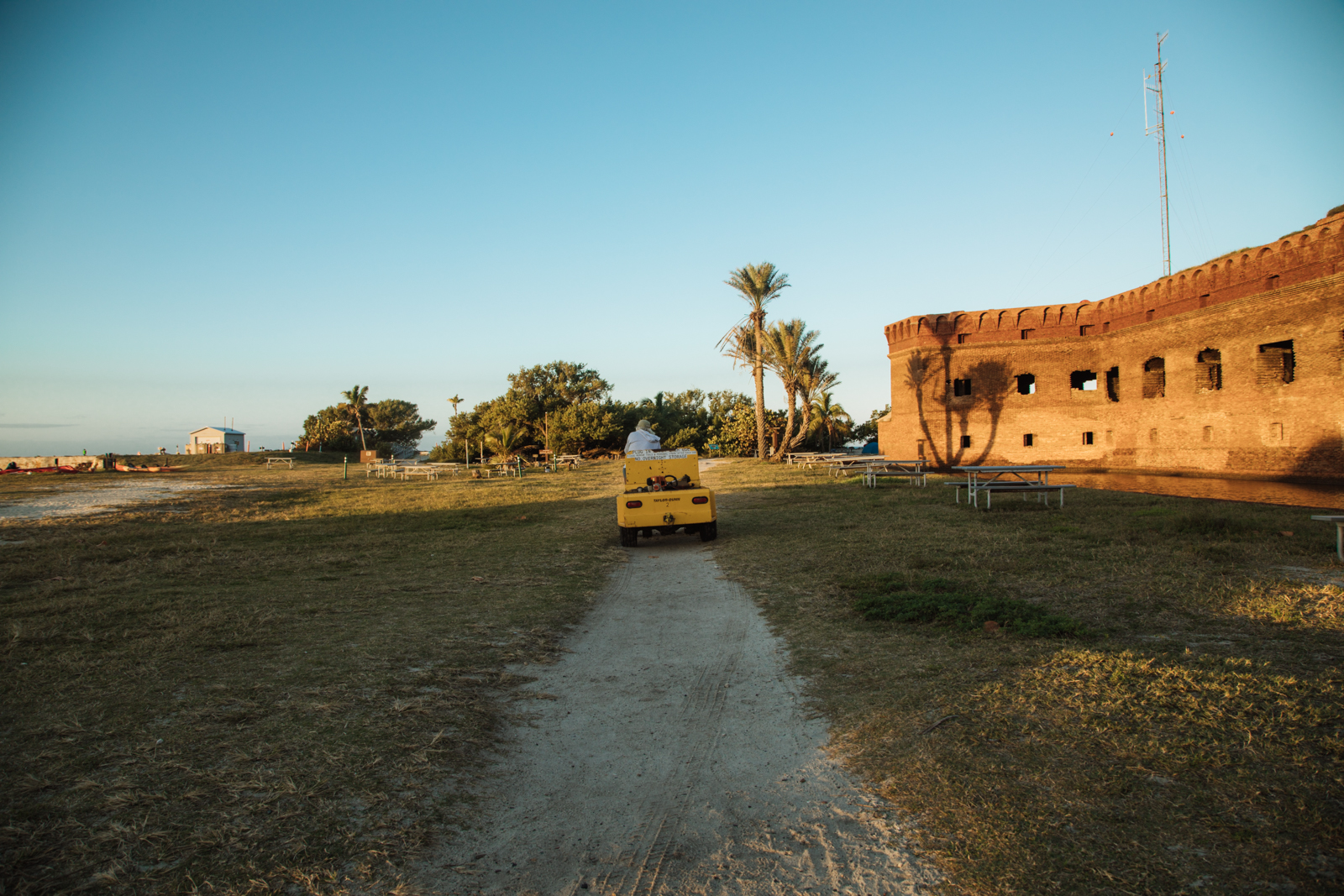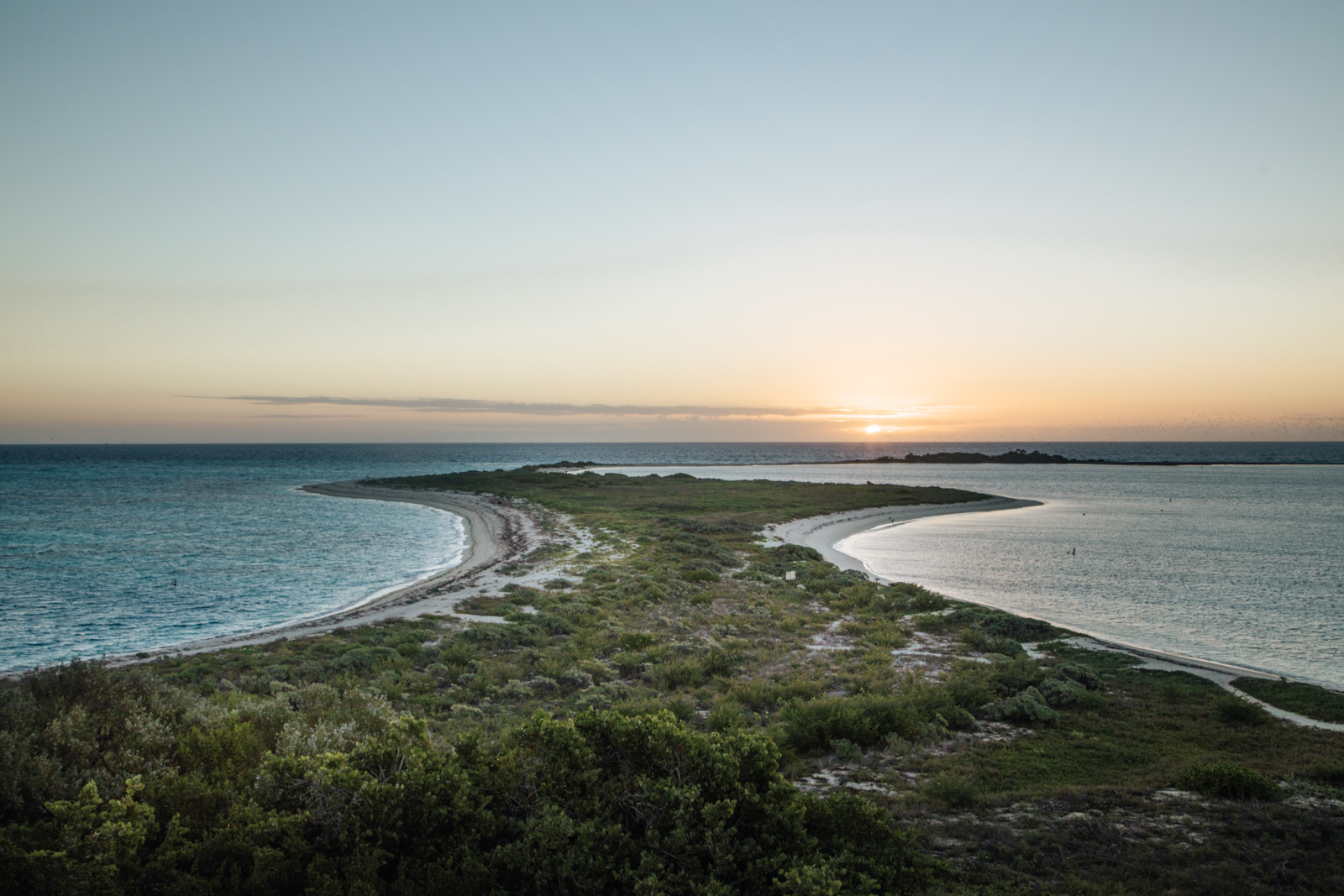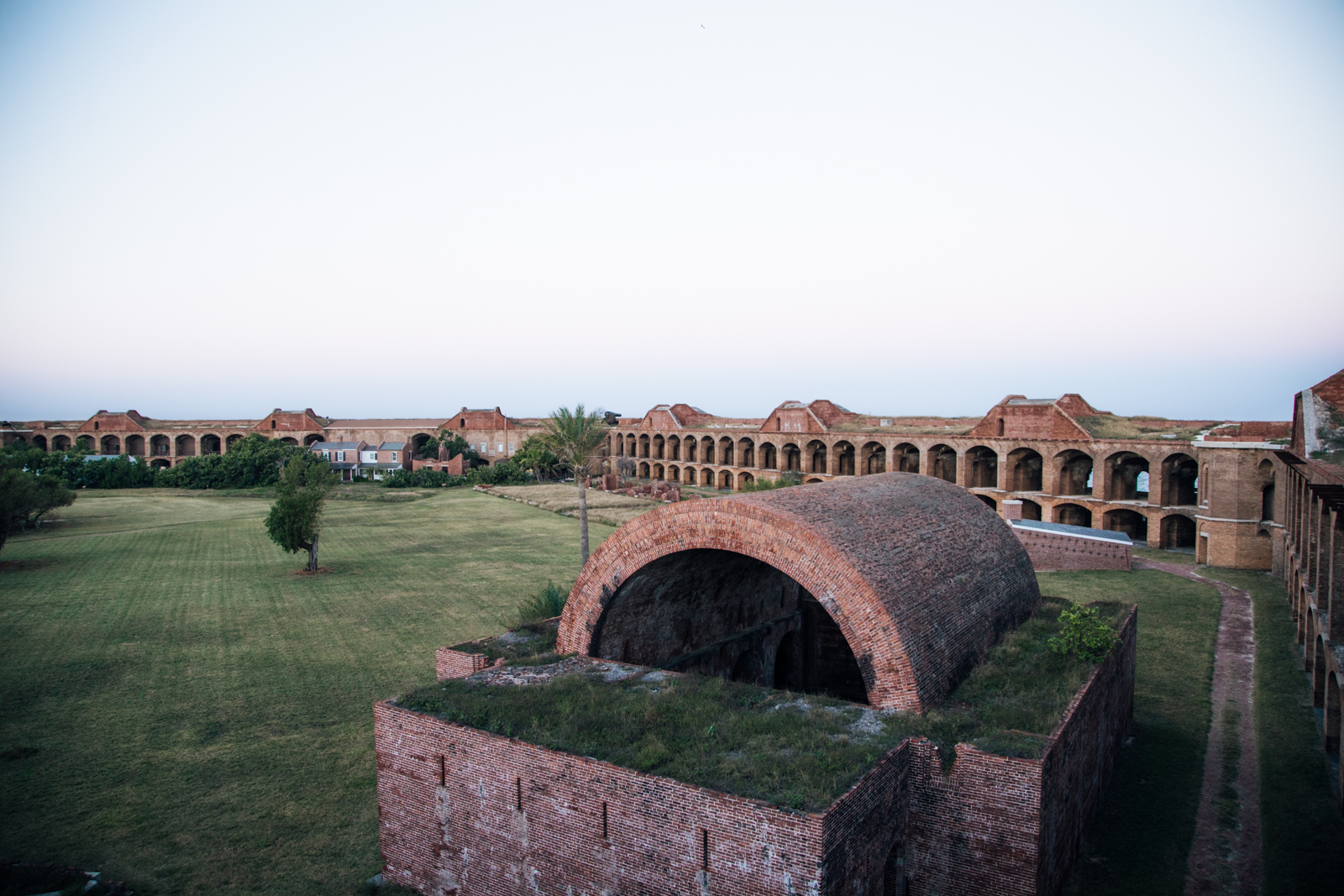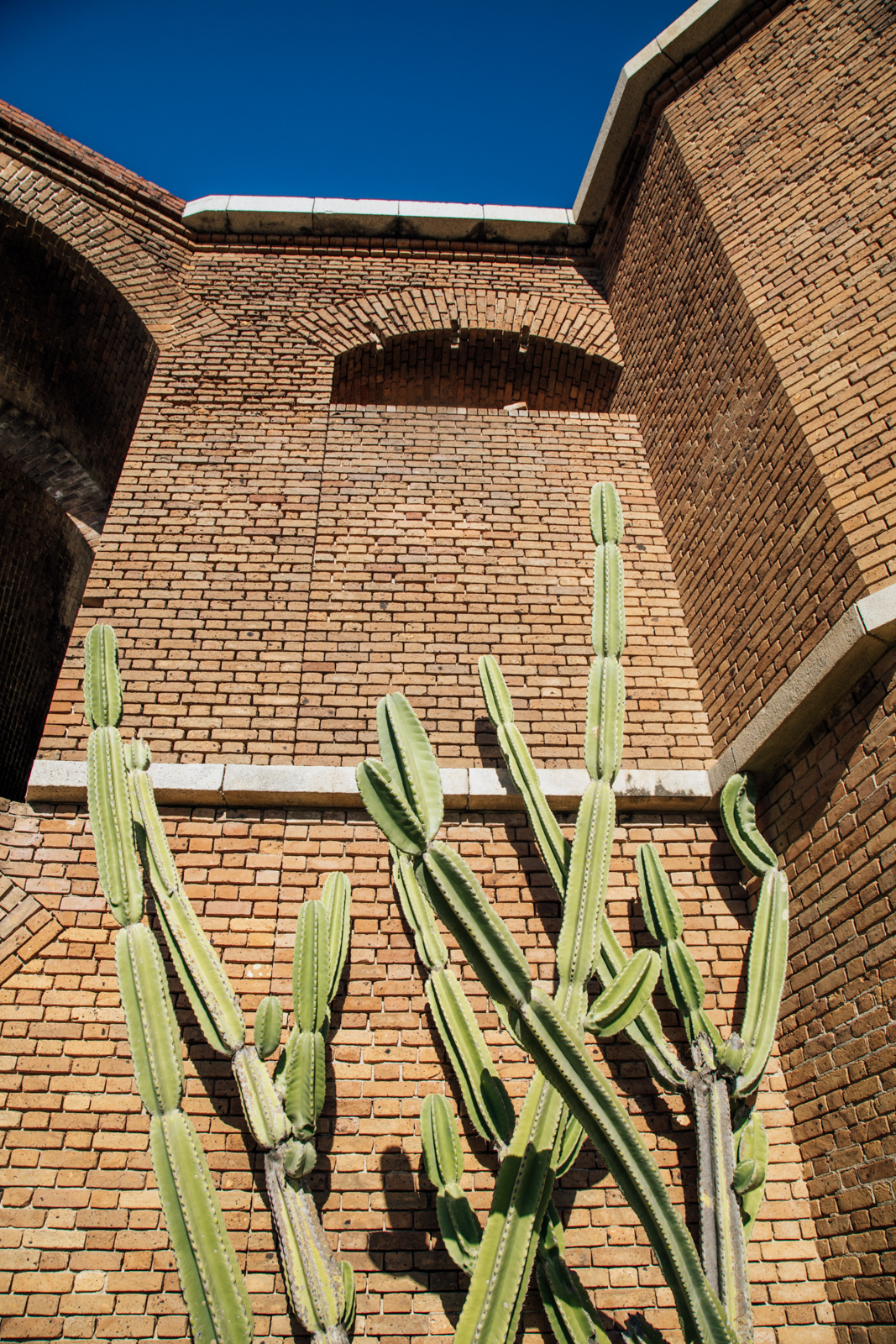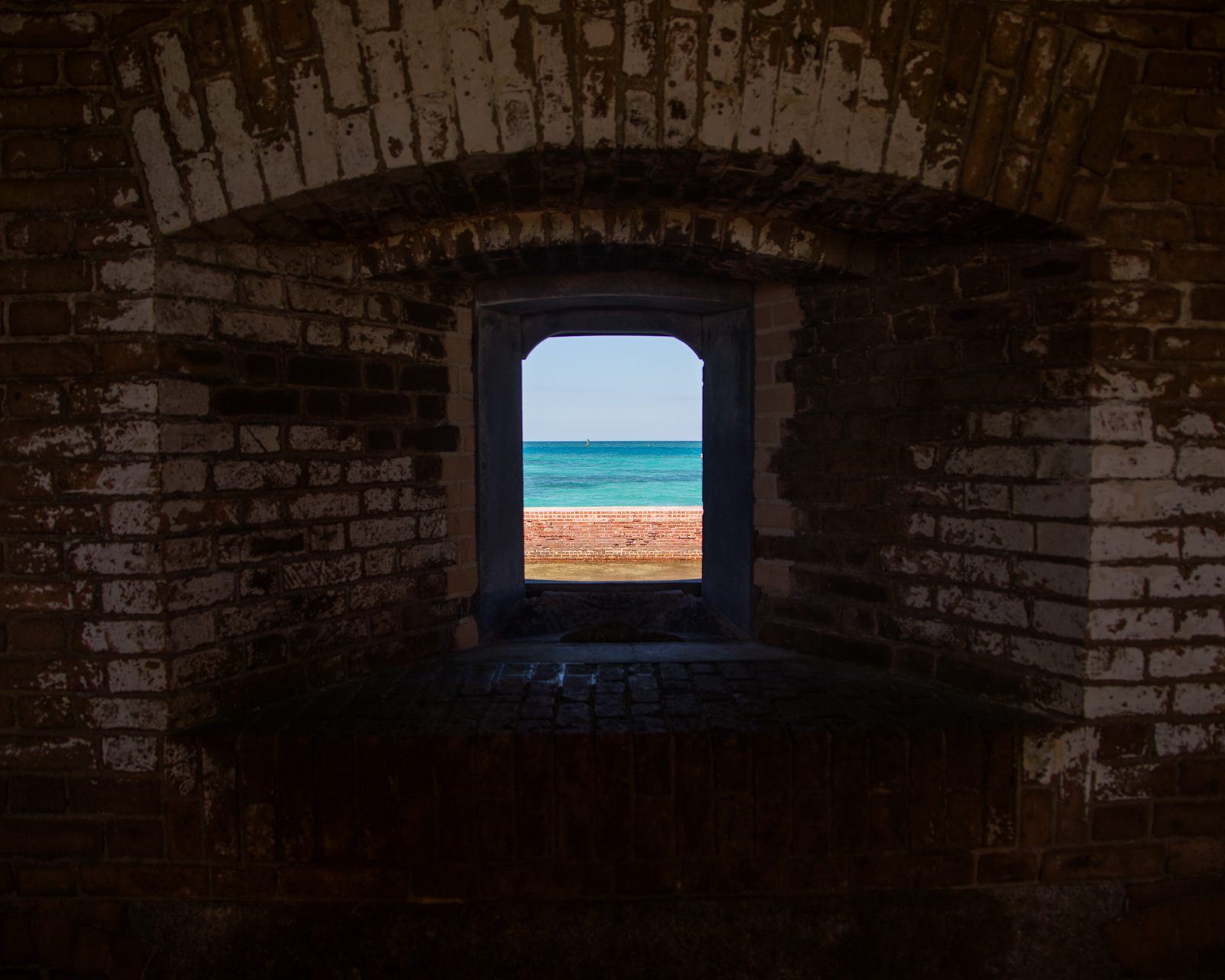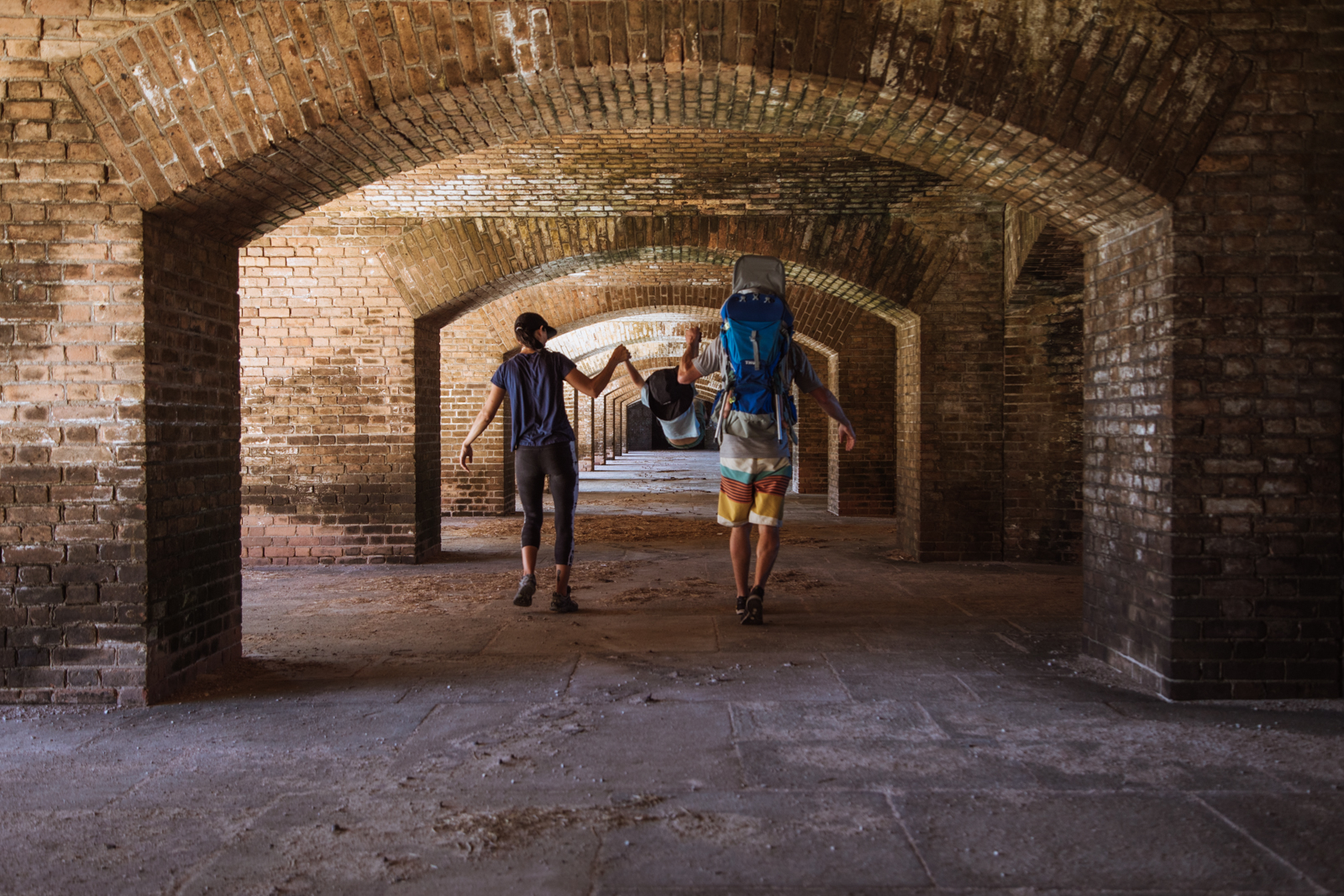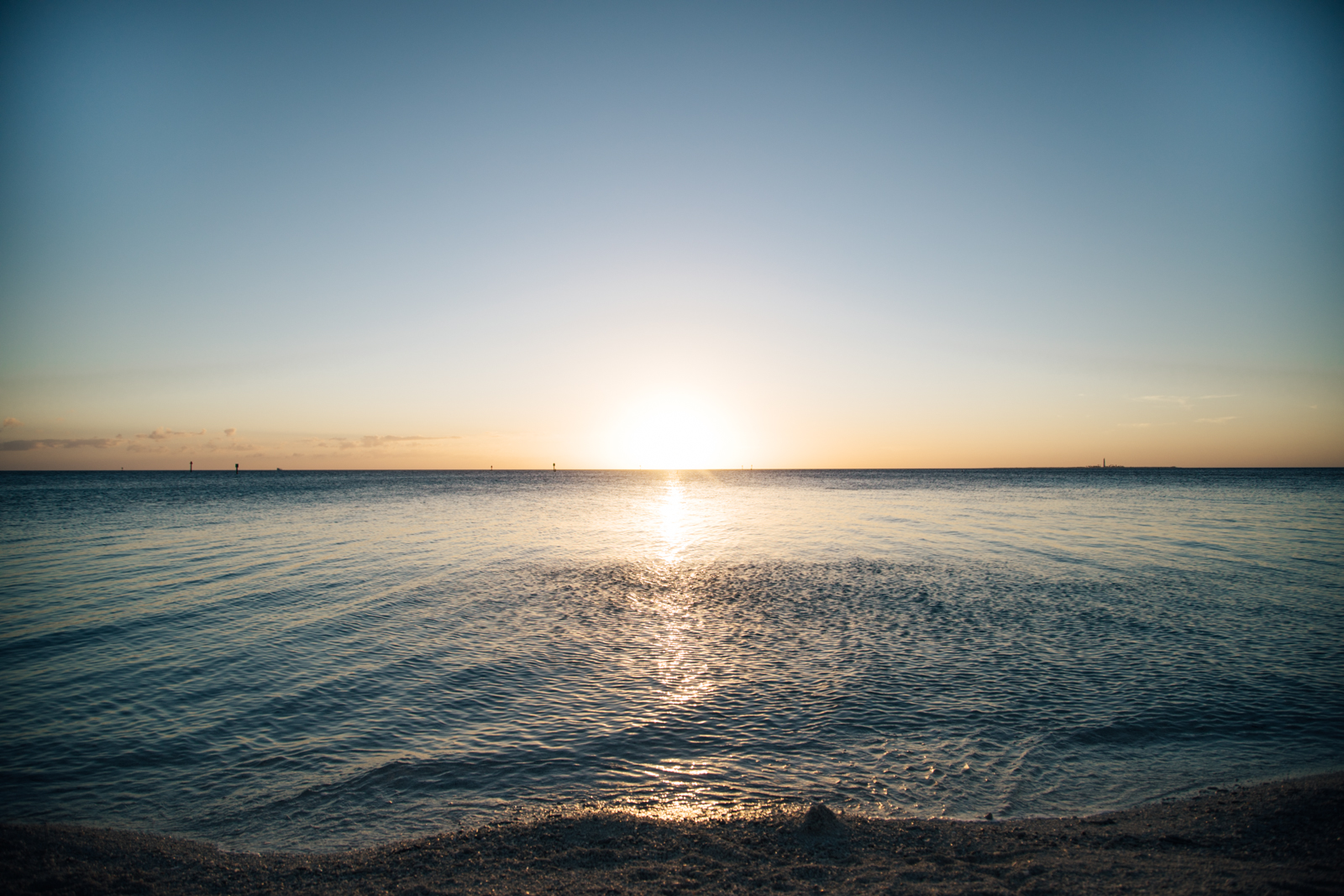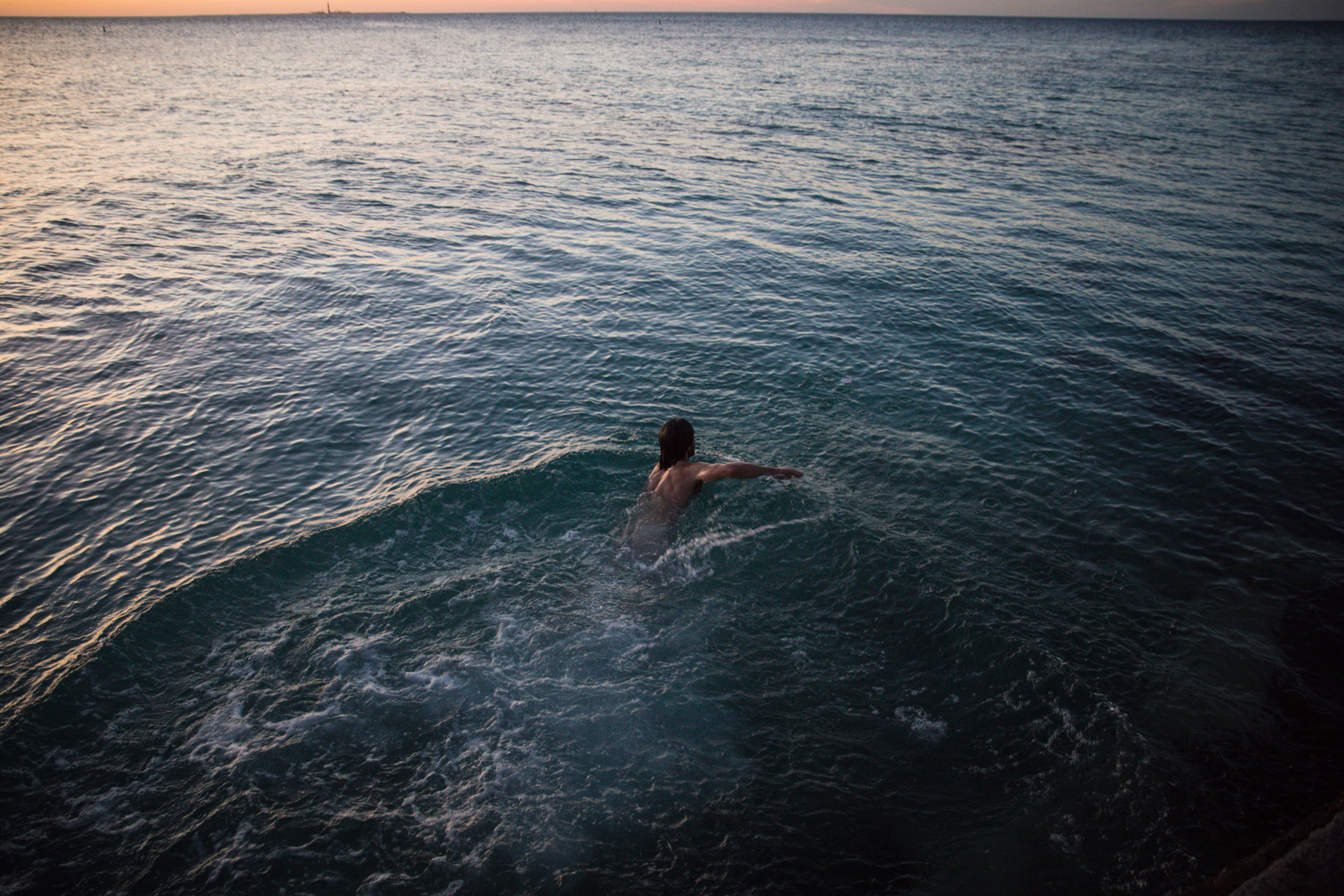A Visit to America's Most Tropical National Park
Sponsored by Good to Go Foods
Packing for any adventure as a young family of four can be a bit daunting. Whether it's just going for a trip to the local sledding hill or a grander adventure, it seems that nothing is spared to ensure comfort and safety for everyone involved. Anything less is a recipe for adventure-suicide.
We just went through this process ourselves while downsizing from a South Portland, Maine home into a 23 ft long 1978 German Fire Truck. We had to go through every piece of clothing, gear, tools, toys, books, etc and decide what would be necessary, desirable and would fit inside our new lifestyle. We are now about a month into the trip and find ourselves still making pit stops at local thrift shops to give the unnecessary away. While there are all kinds of stories inside of this lifestyle change, we wanted to share some thoughts from our most recent adventure out to one of America's most remote National Parks: The Dry Tortugas.
This clump of small islands are scattered about 70 miles west of Americas most southern tip, Key West. Nestled closely like a flotilla, the Tortugas are a gem of a National Park especially if you have the chance to spend the night. To be honest, before leaving Maine, they were not on our radar, but as our "week in the Keys" neared, we began searching for things to do. When we discovered we could sleep on a remote National Park Island 2 hours out on a ferry, we were in. Yet, little did we know that most people book this trip 12-18 months in advance and the receptionist would repeatedly laugh at me with my daily phone calls hoping for a cancelation.
Persistence paid off however and we soon found ourselves with an overnight trip to this magical place. If you ever find yourself down here and seeking to head out overnight, I recommend calling every day before your trip because you never know what could happen. I kept at it and we scored another night just by having the fortune of another cancelation.
Booking was the easy part. The real challenge came at about 8:00 PM the night before as we navigated the busy streets of Key West searching for parking in order to bed down and to pack for the trip. We scored one and a gear explosion ensued, digging a multitude of camping gear out of the way back of the van's gear shed, budgeting the correct number of diapers for our 12 month old, not one but two baby carriers, the stroller, fishing pole, all the water we would need for 3x days and of course food. Fortunately with a few Good To Go's for dinner each night, we were able to keep our pantry a bit lighter and simpler for the trip - something that always goes a long way when packing for a family camping trip.
We awoke the next morning in the dark to check our bags onto the catamaran. More advice here for readers - if you do decide to camp out there, do not bring a MSR or Jet boil type stove with canned propane fuel - we found out the hard way at 6:30 AM. Additionally pack plastic tubs, not bags as the Norwegian rats can chew through just about anything. Anyway, this didn't stop us and by 8 AM we were pulling out of the harbor and heading west at a ridiculous pace. As quickly as Key West faded so did the cell service and vast electric blue engulfed our surroundings.
When we docked at Fort Jefferson, the 150+ day trippers offloaded while we six campers stayed aboard to learn the boundaries as set by the Ranger. Finally, after the official safety talk, we were set loose upon the island to set up camp. Our last trips were as a family of three on the Maine Island Trail, but as a family of four, there is definitely less spare time to catch up on a book or a nap. Just like living in a home, in a van or a camping trip, with two young kids, all of our hands are always full.
After a quick lunch and a couple of naps, the catamaran was hastily departing and the island breathed a sigh of relief as over 90% of the daily occupants departed. Soon the last of the float planes roared out of the harbor and it was only those at the ten or so campsites, the brave souls who sailed in and moored offshore and the friendly staff.
Snorkeling in the late afternoon sun was like medicine for our weary bodies after such a painstaking journey to uproot ourselves from our home and set out on this adventure. We were as far south as we could get in the continental US and it felt just right. Our son too, donned his swimmies and proceeded to blow our minds doggy paddling way out of his comfort zone for over an hour in the tropical setting.
After a day like this, we were happy to have meals basically prepared as all we needed was to boil a bit of water and watch the sunset. And this is how our trip unfolded the next few days, snorkeling, long swims, exploring Fort Jefferson and dodging the army of hermit crabs and group of rats trying to steal our food and water each night.
We absolutely recommend this trip to anyone considering and offer the following advice as some of these things were learned the hard way:
Do:
Pack food and water in hard-sided containers - Rats.
Bring cash to pay your $15/night camp fee
Call Yankee Ferry on short notice to see if you can fill up a canceled seat.
Consider alternative ways in and out as the Park allows you to stay 14 days, not 3 as the Ferry mandates
Consider a kayak, SUP or any other way to get out to the reefs.
Don't:
Bring too much water - the ferry shows up every day and you can fill your bottles with ice cold water
Bring your snorkel gear unless you are a pro - they have it for free on the island.
Try and book an overnight trip a week before in the high season (I think we were incredibly lucky as most people book 12-18 months out).
Some more photos from the Park
